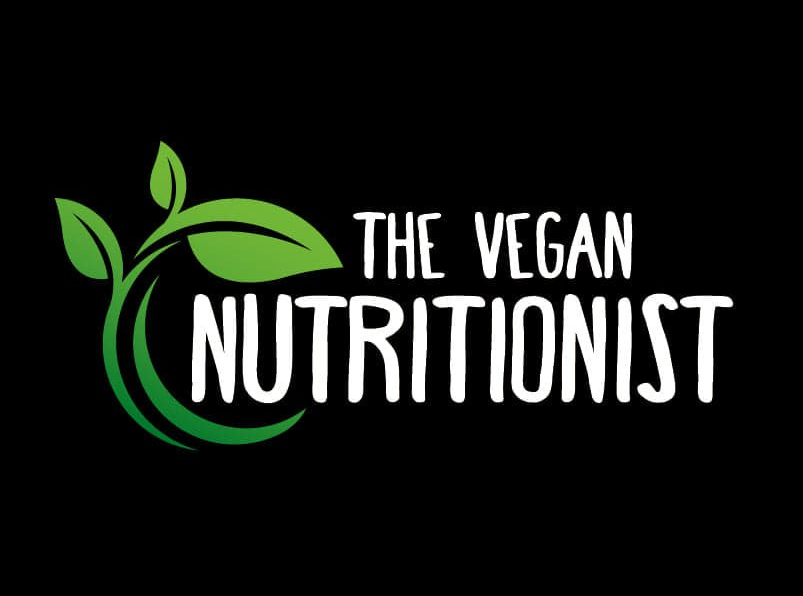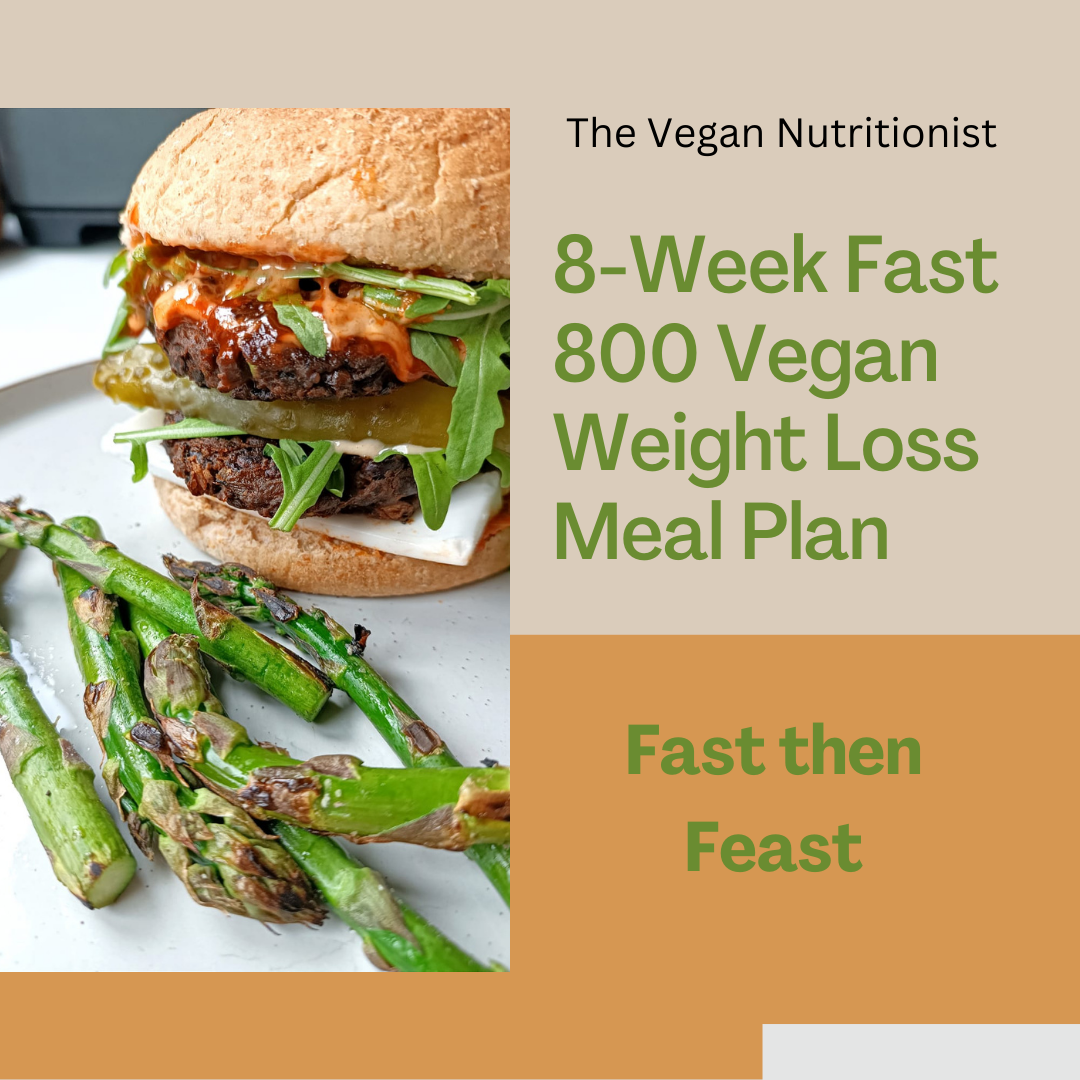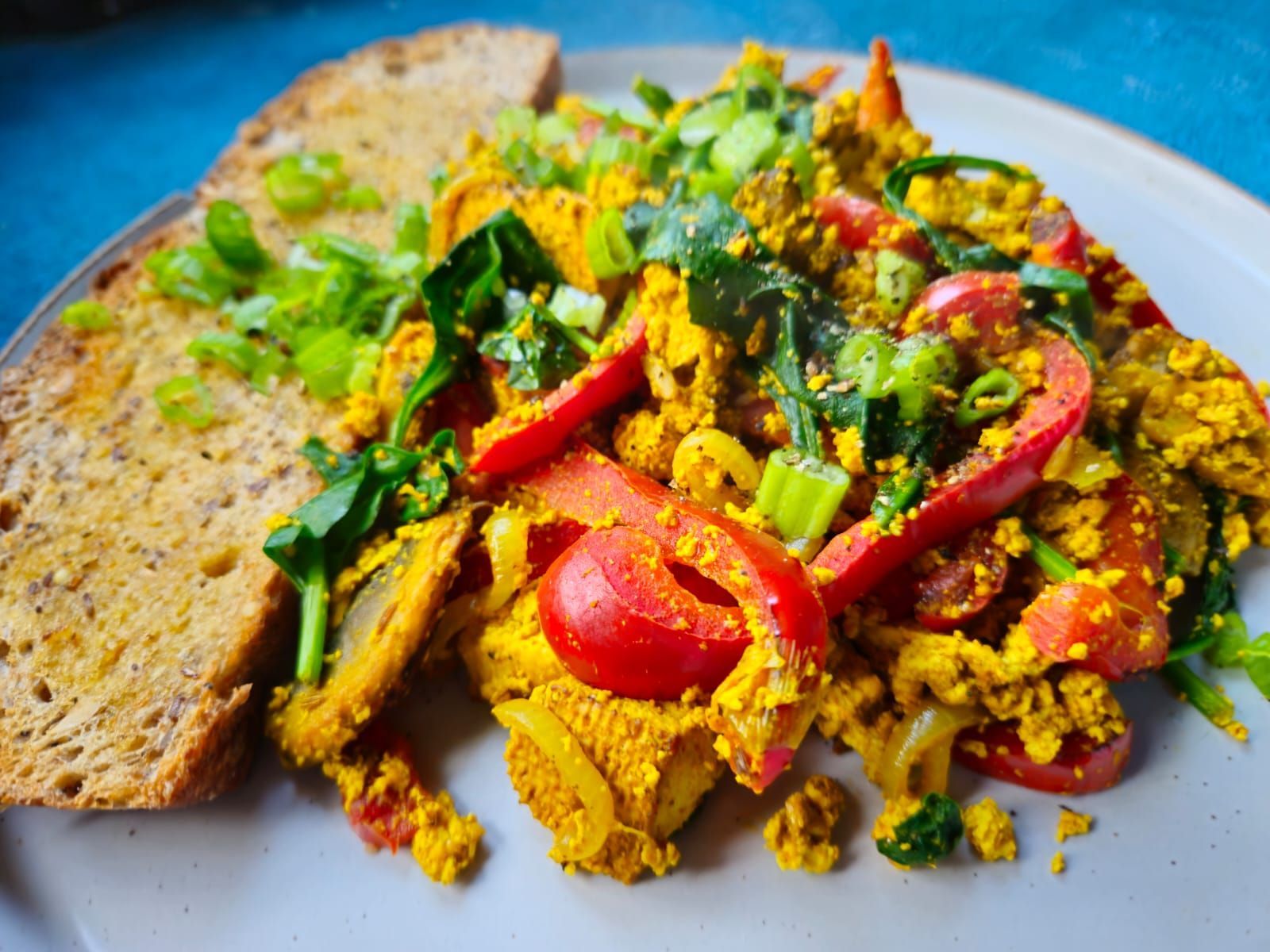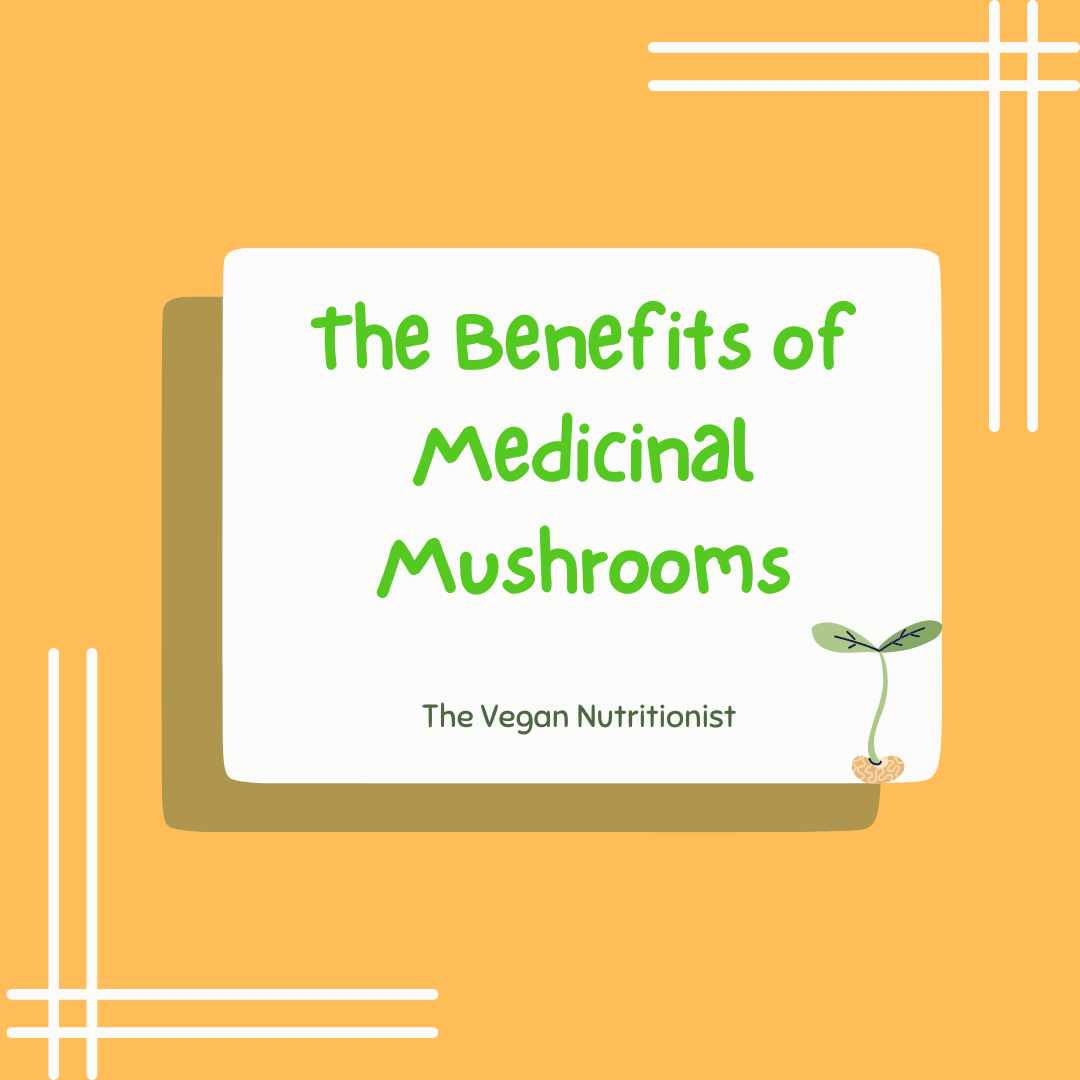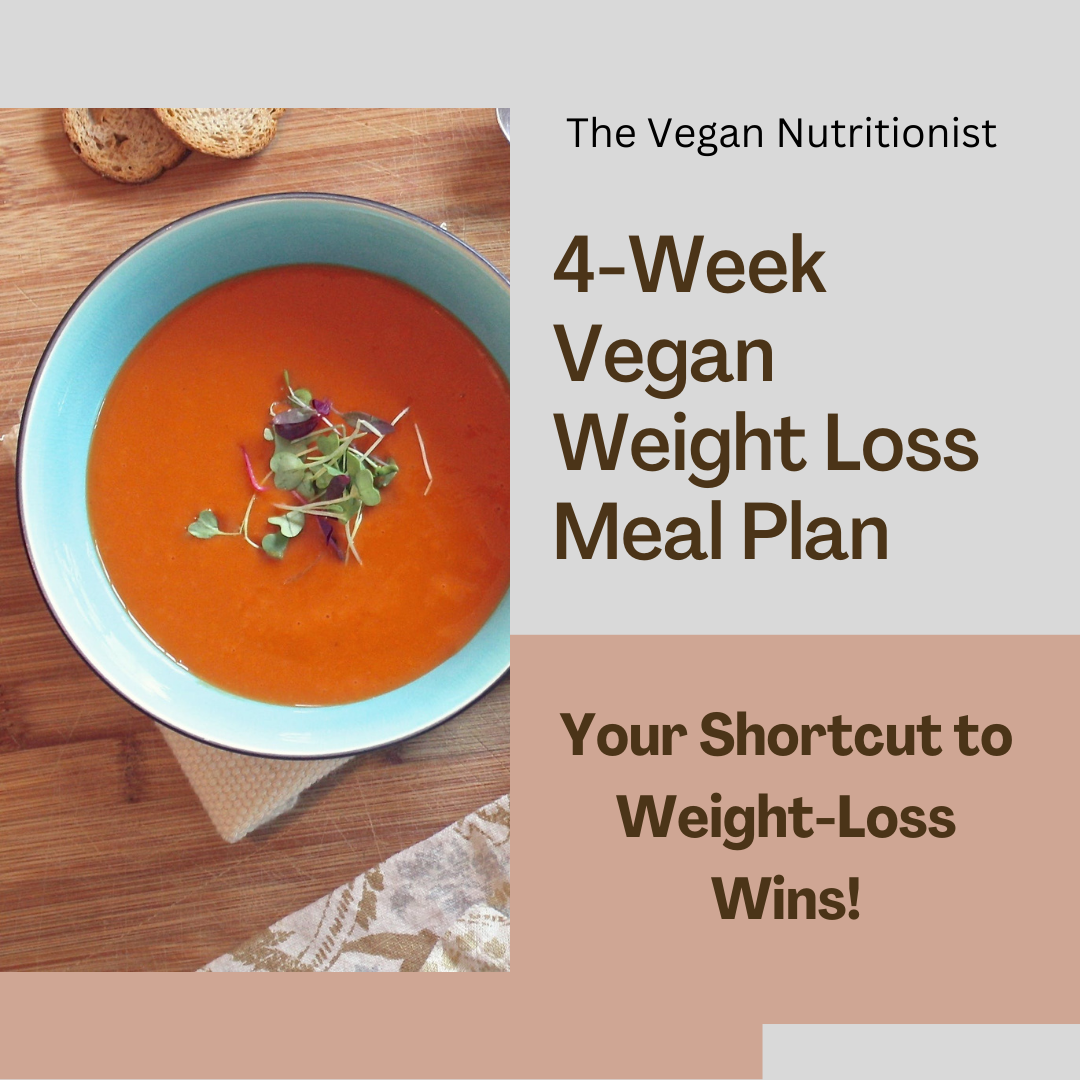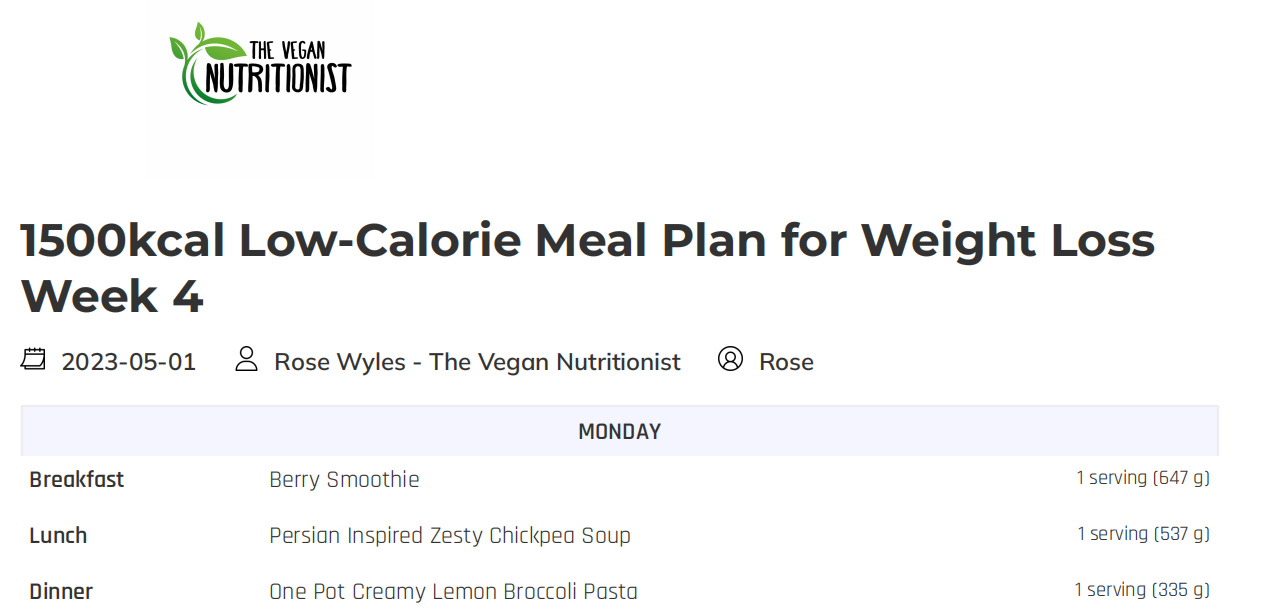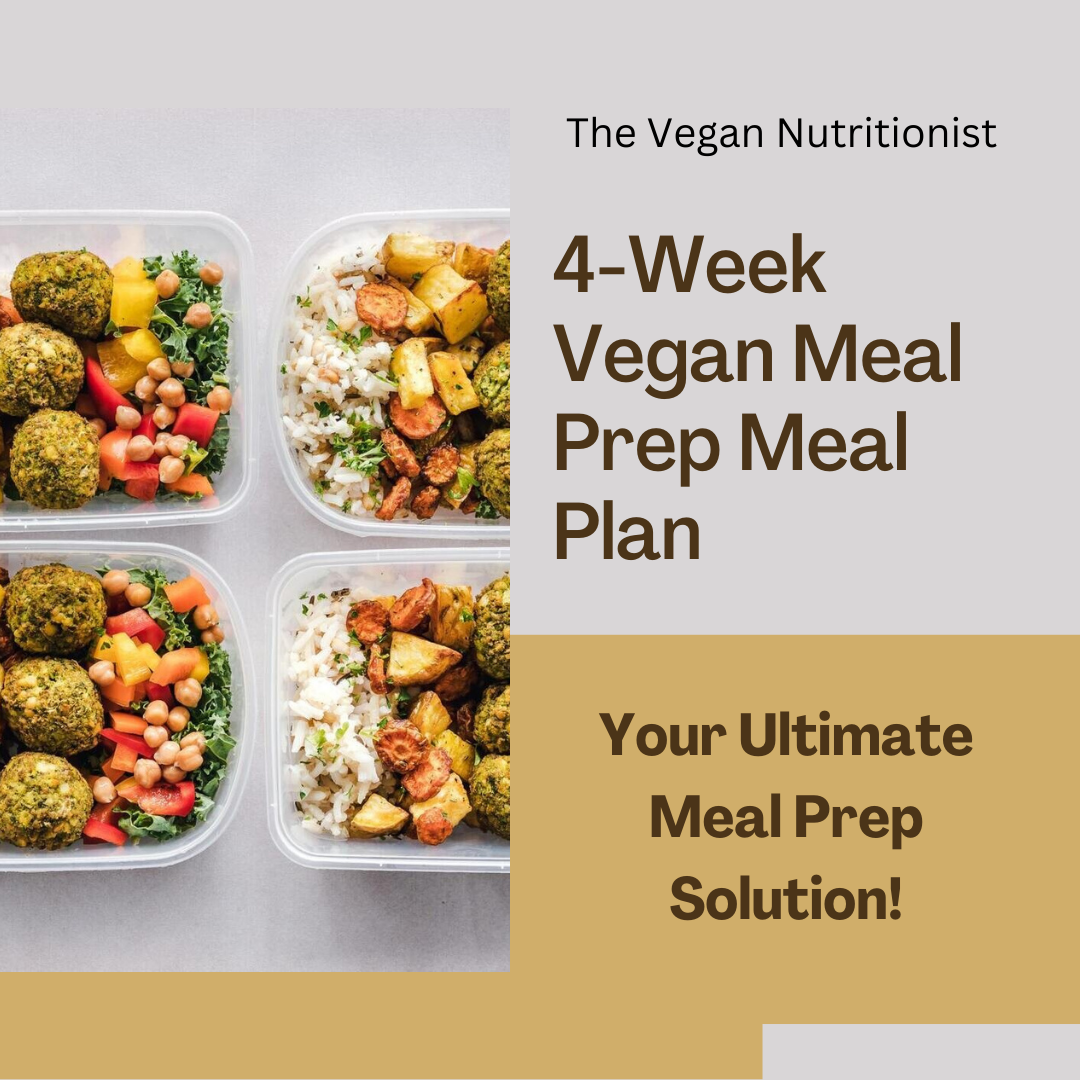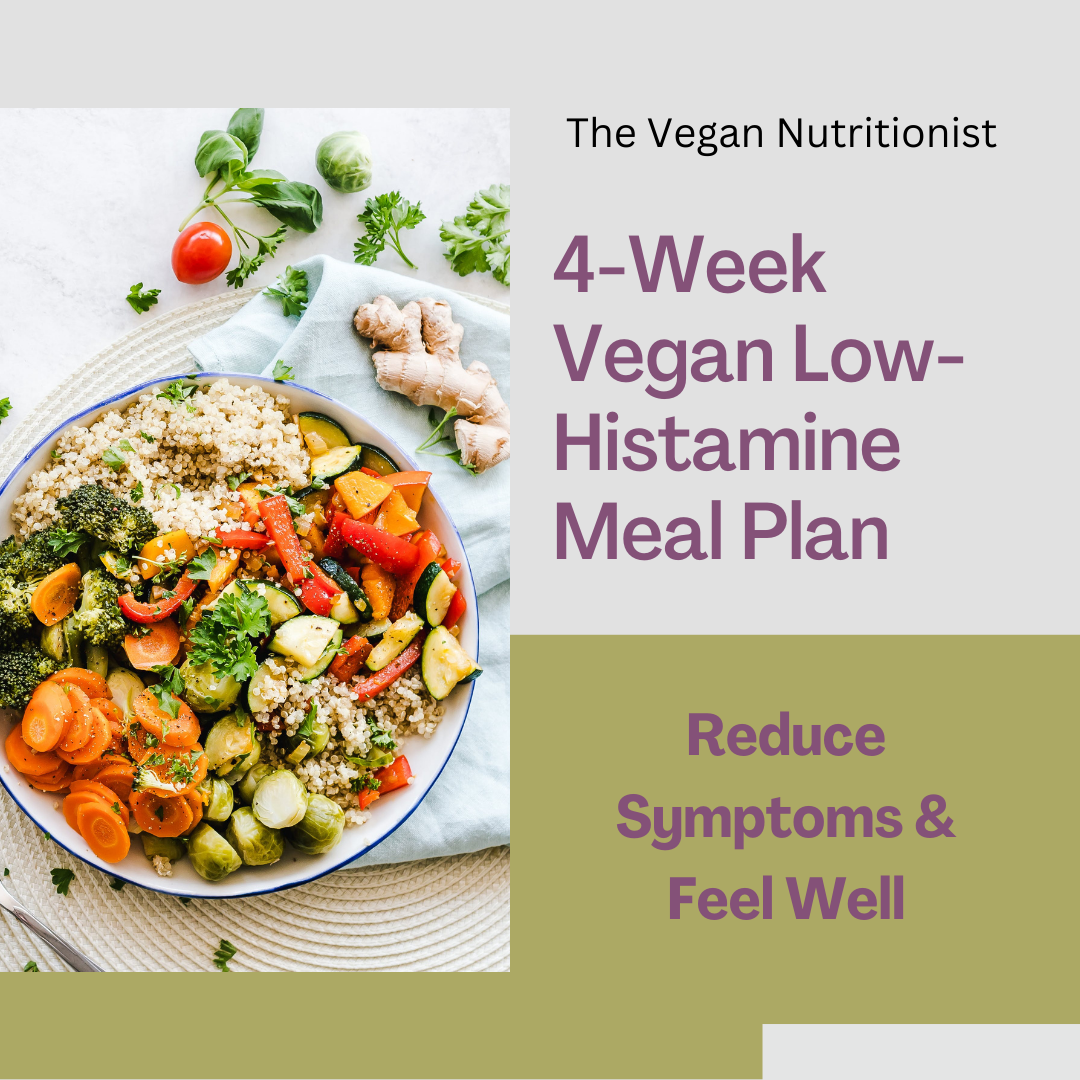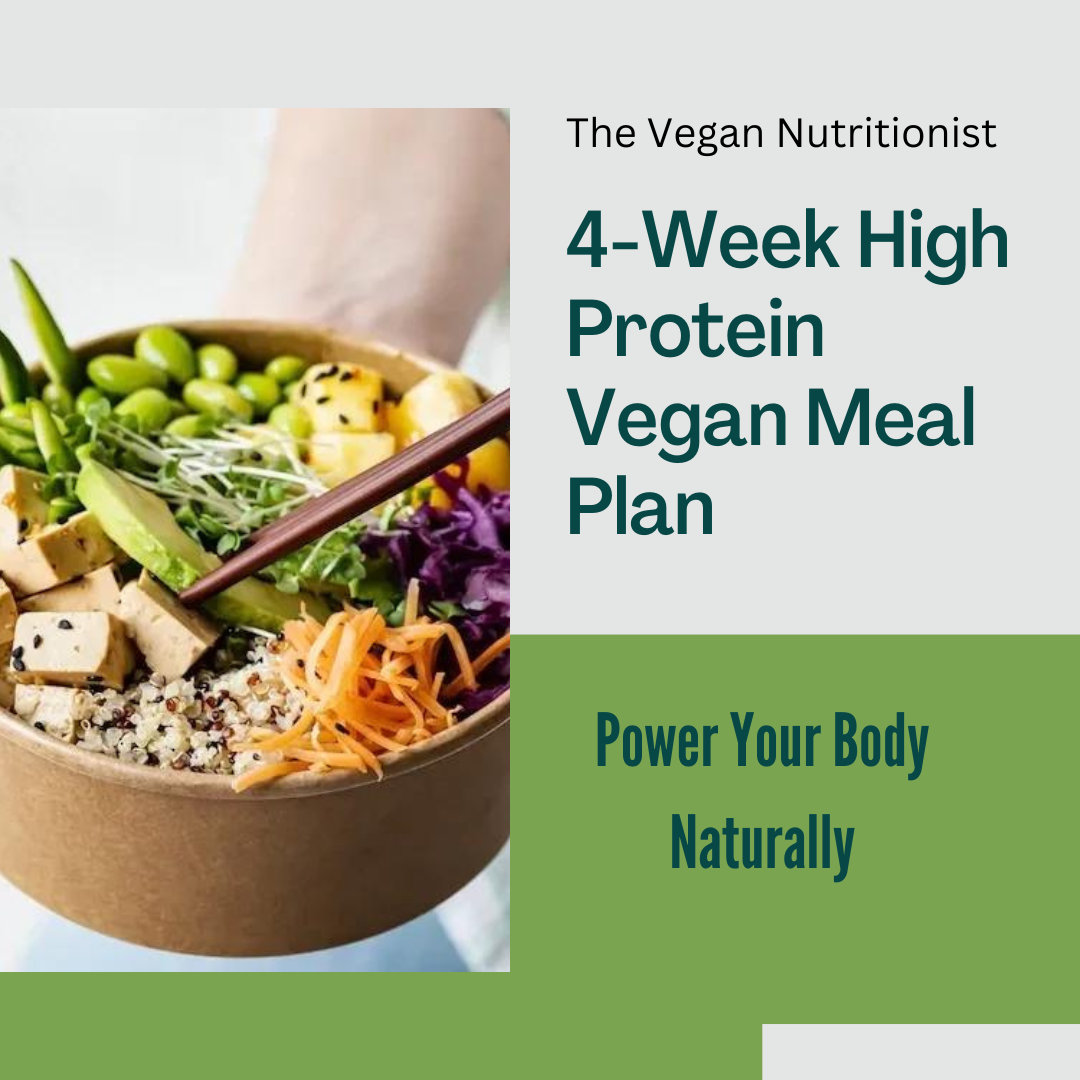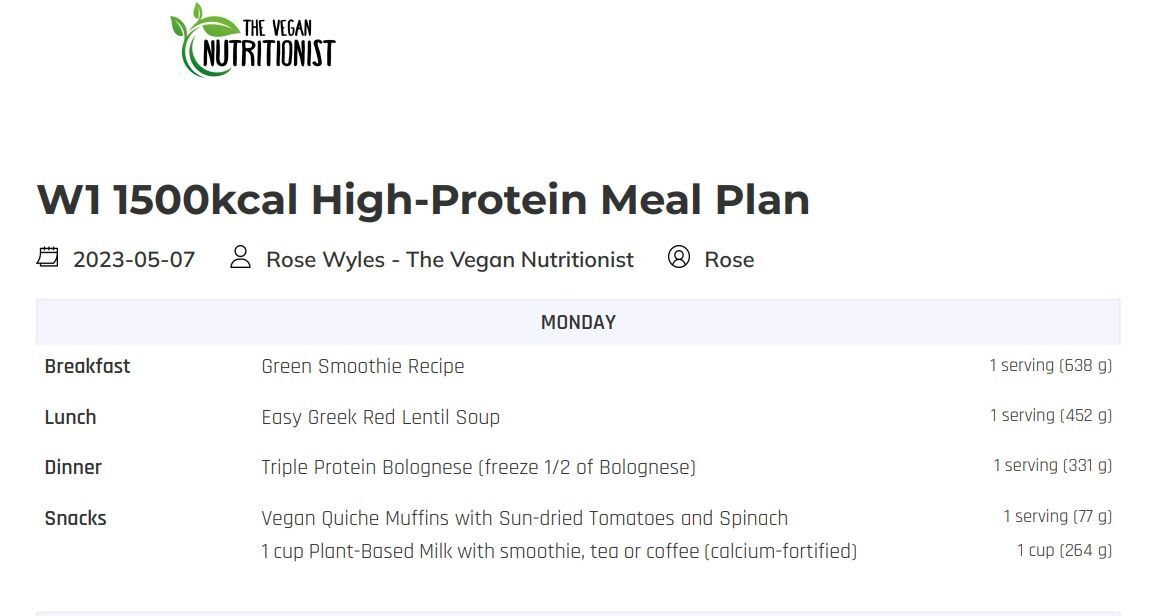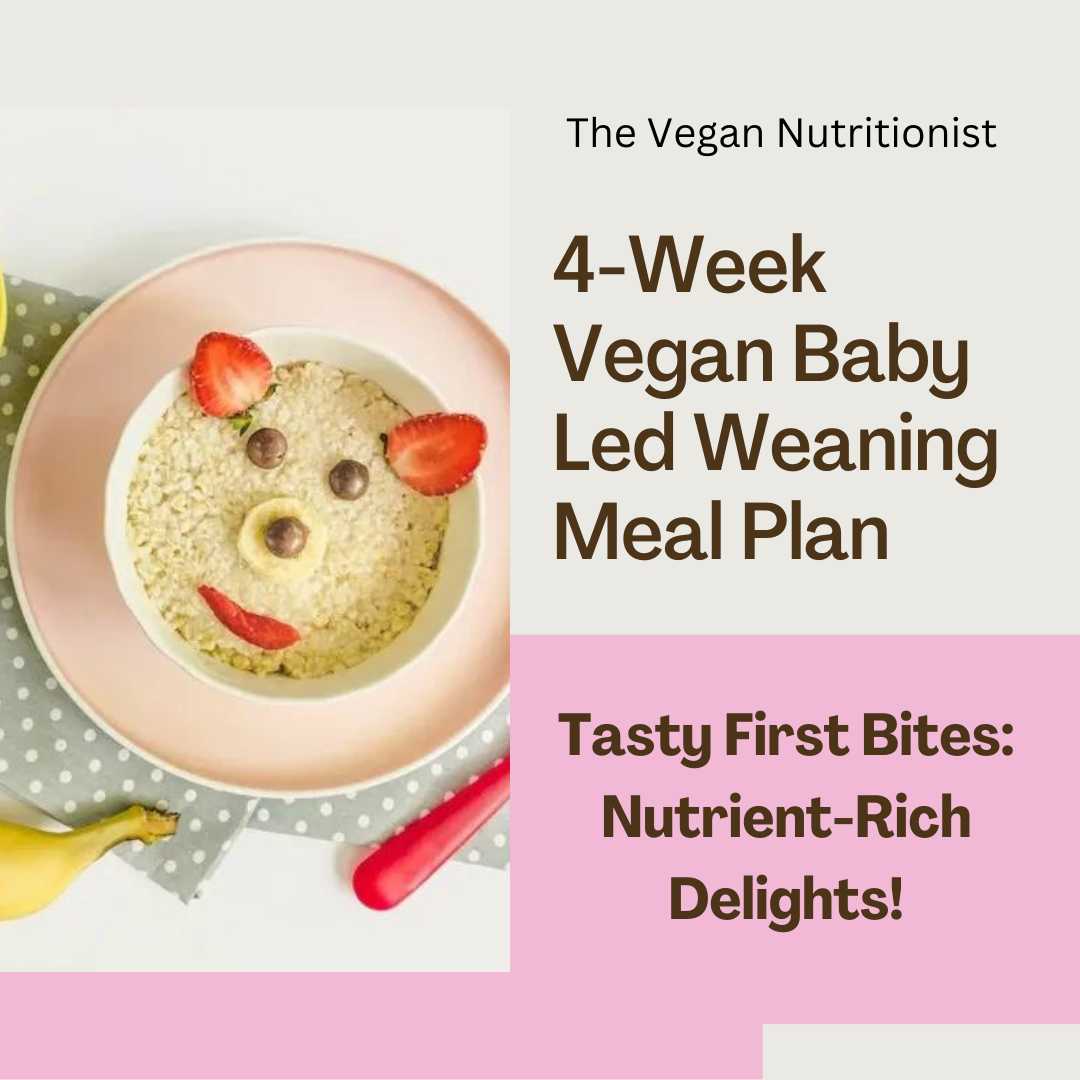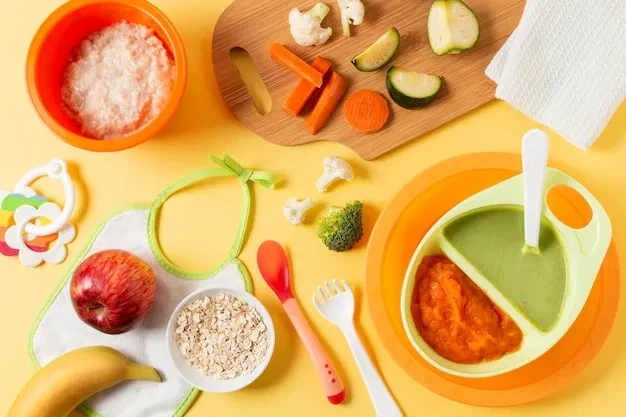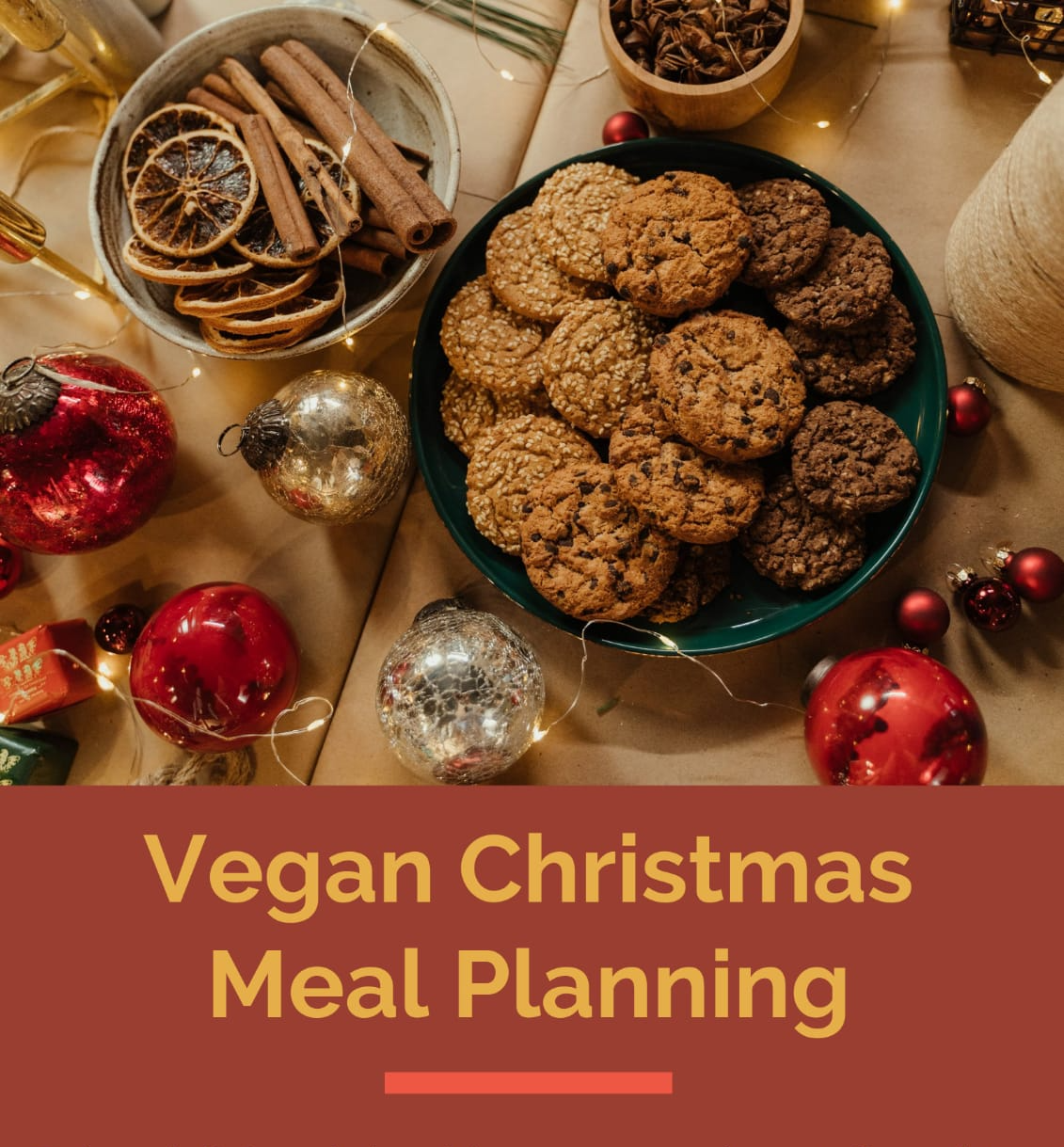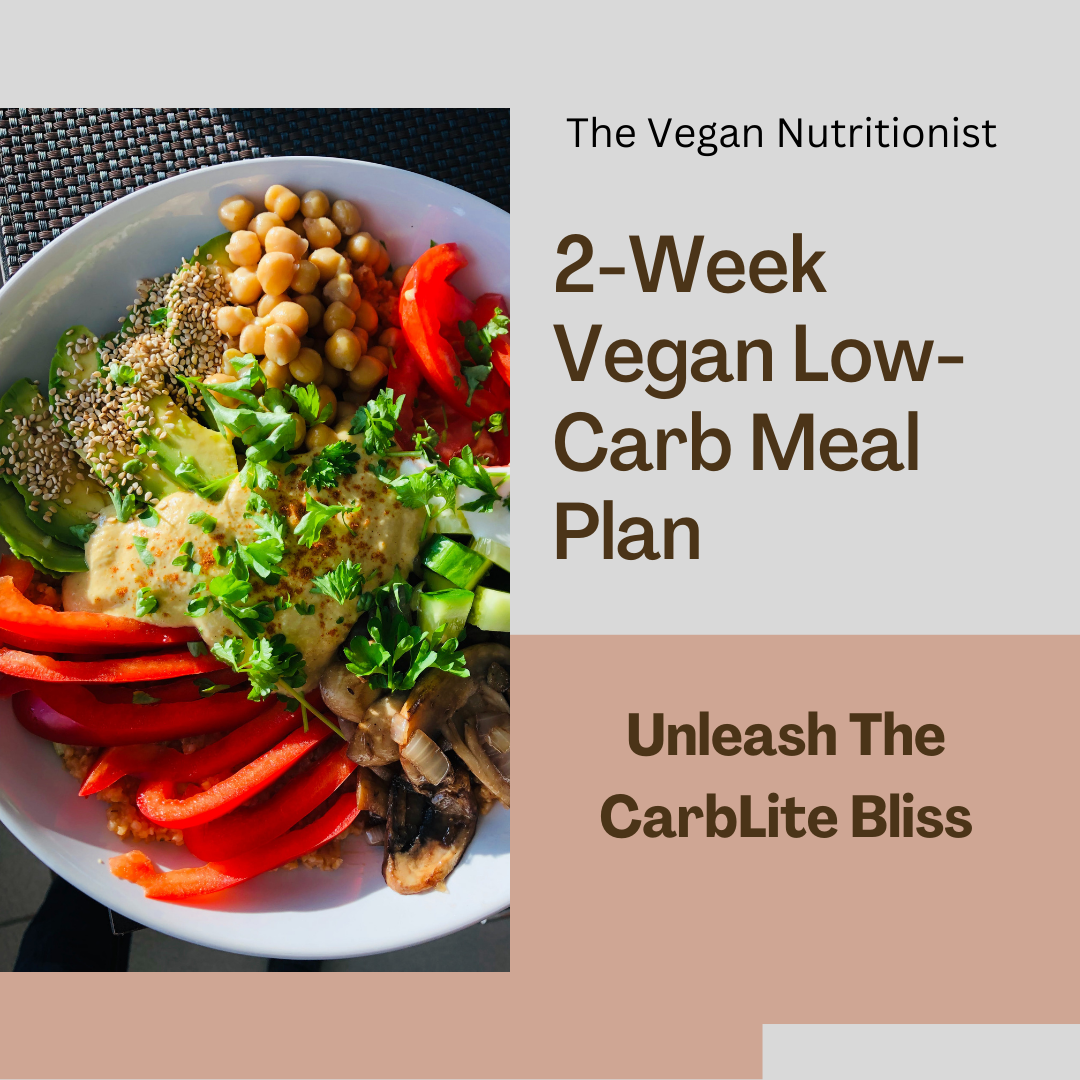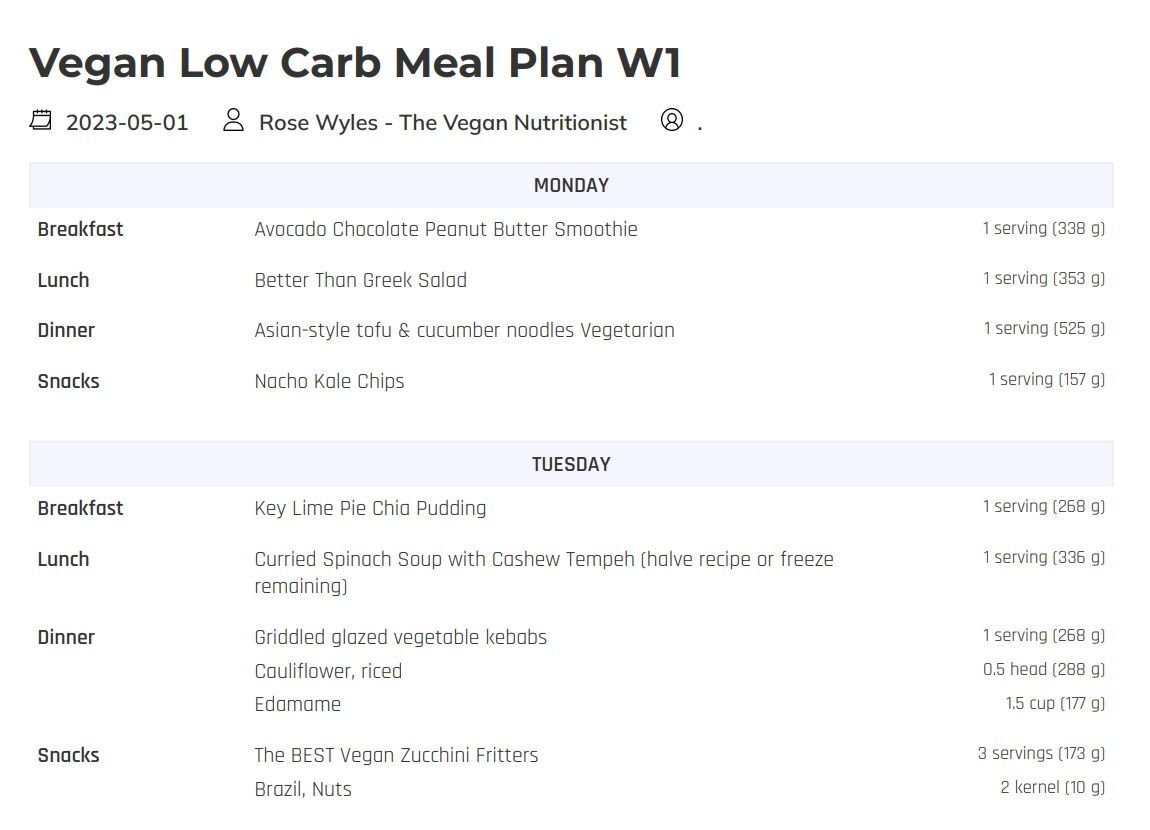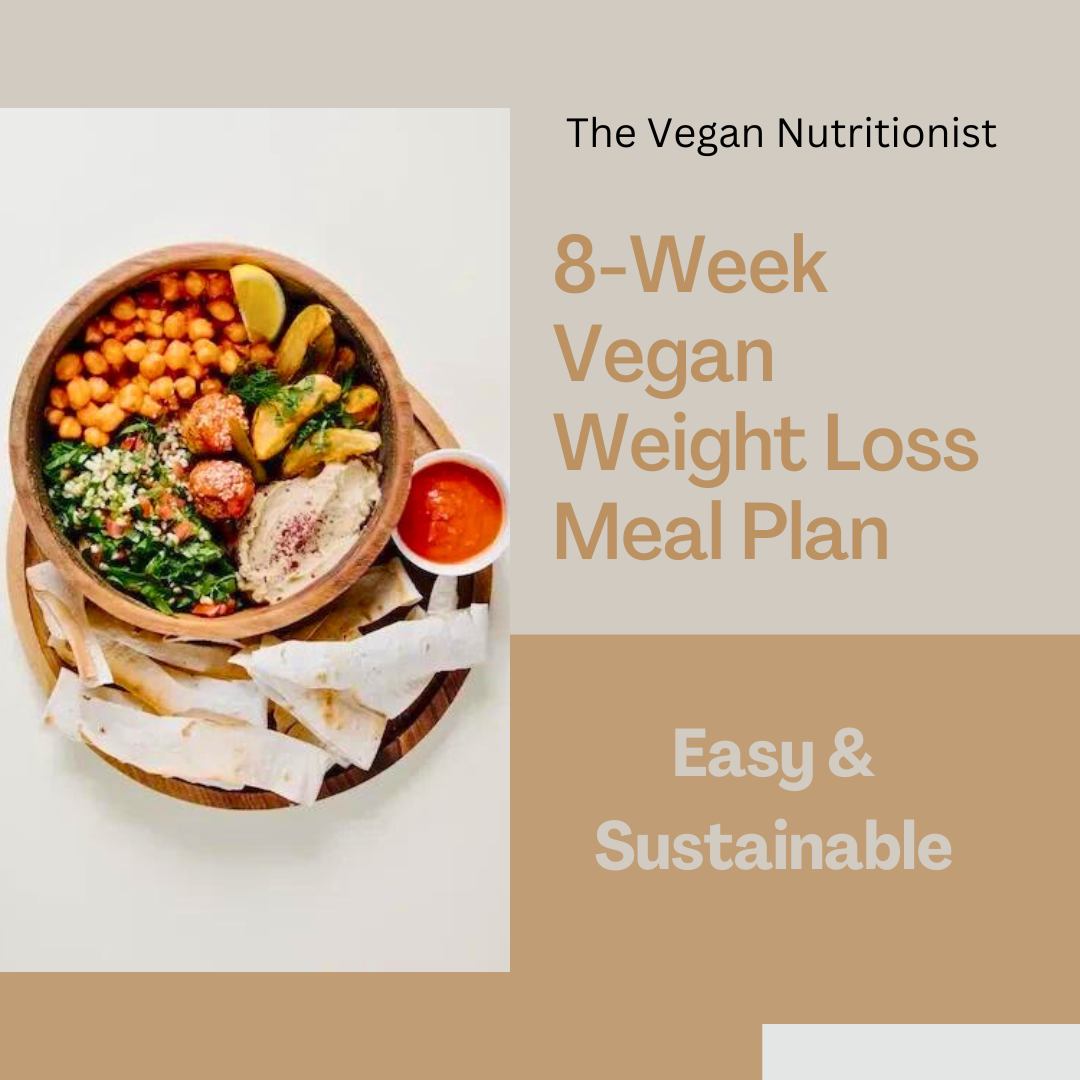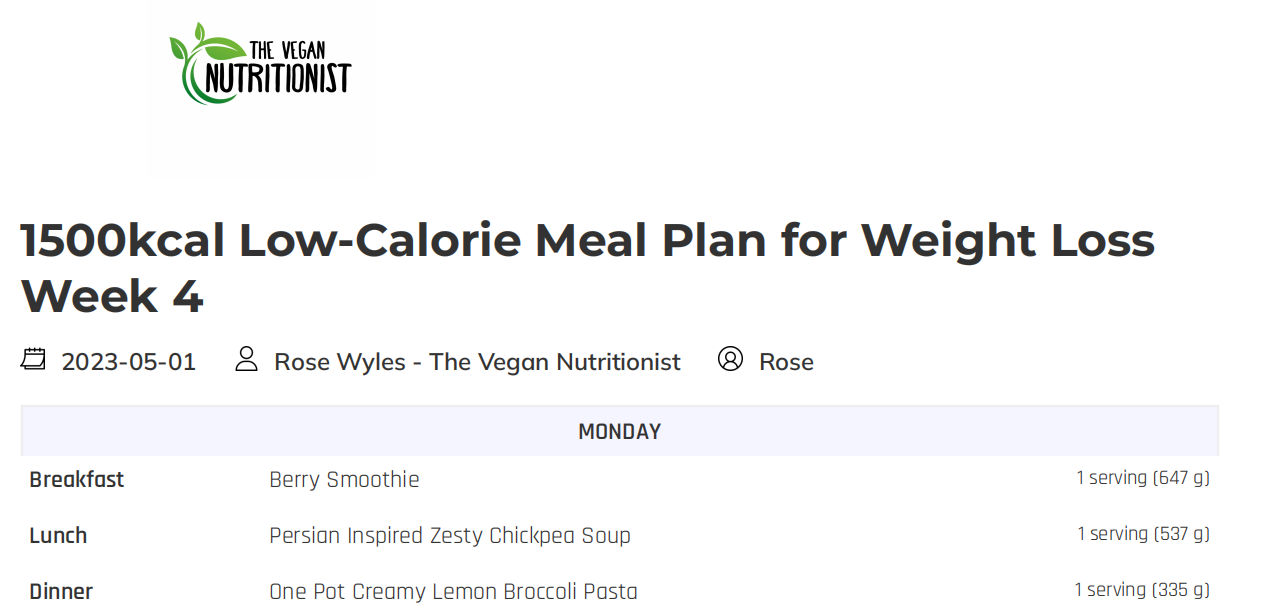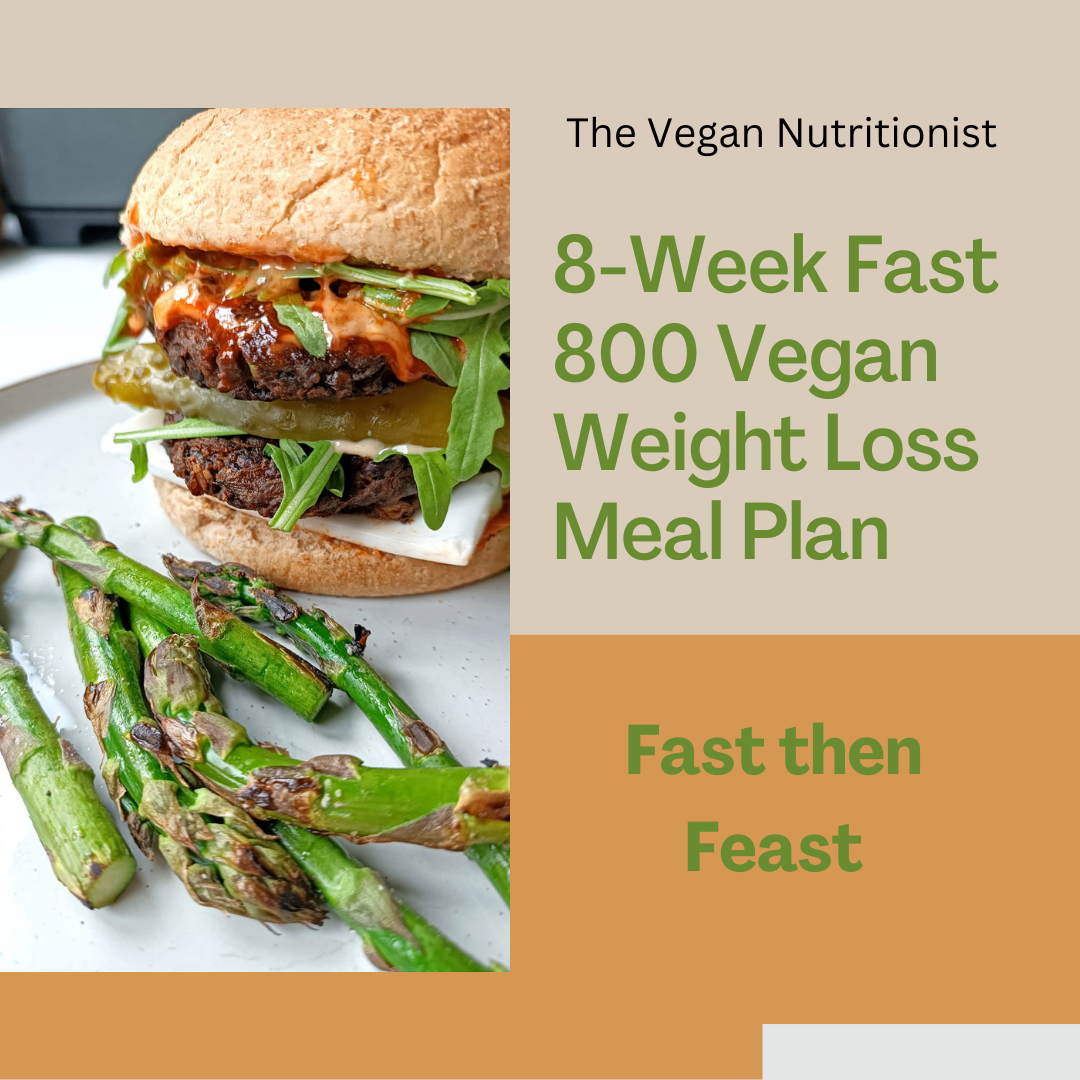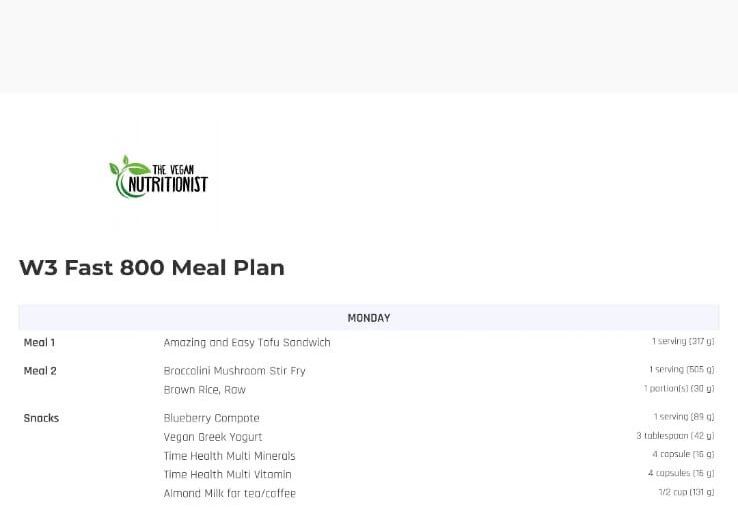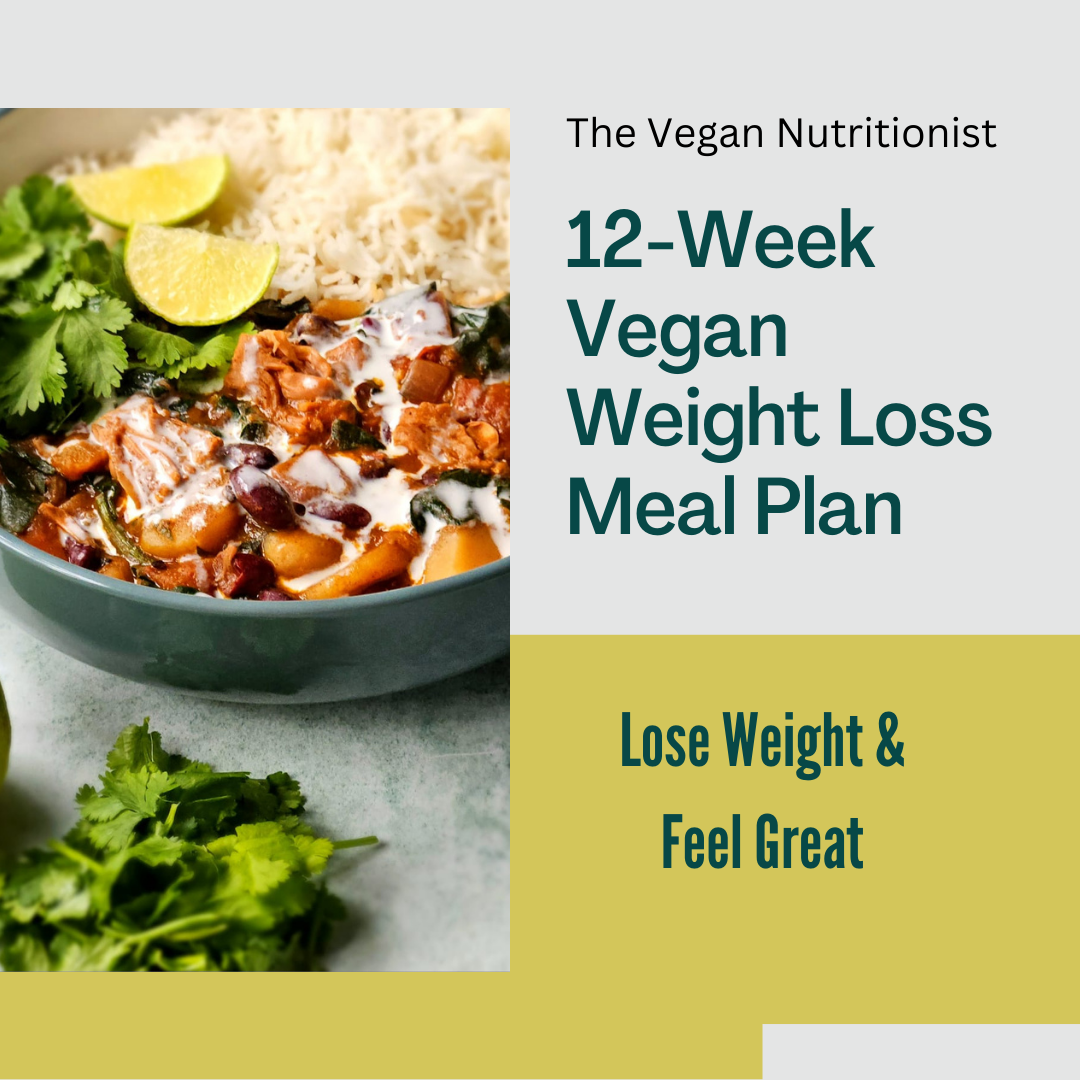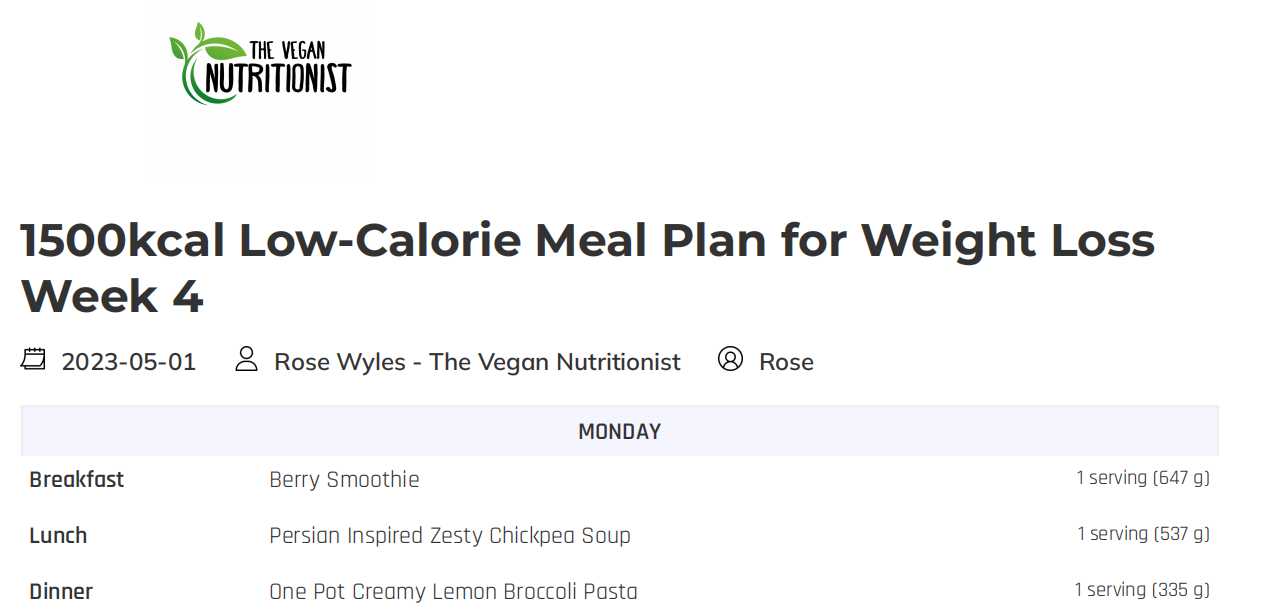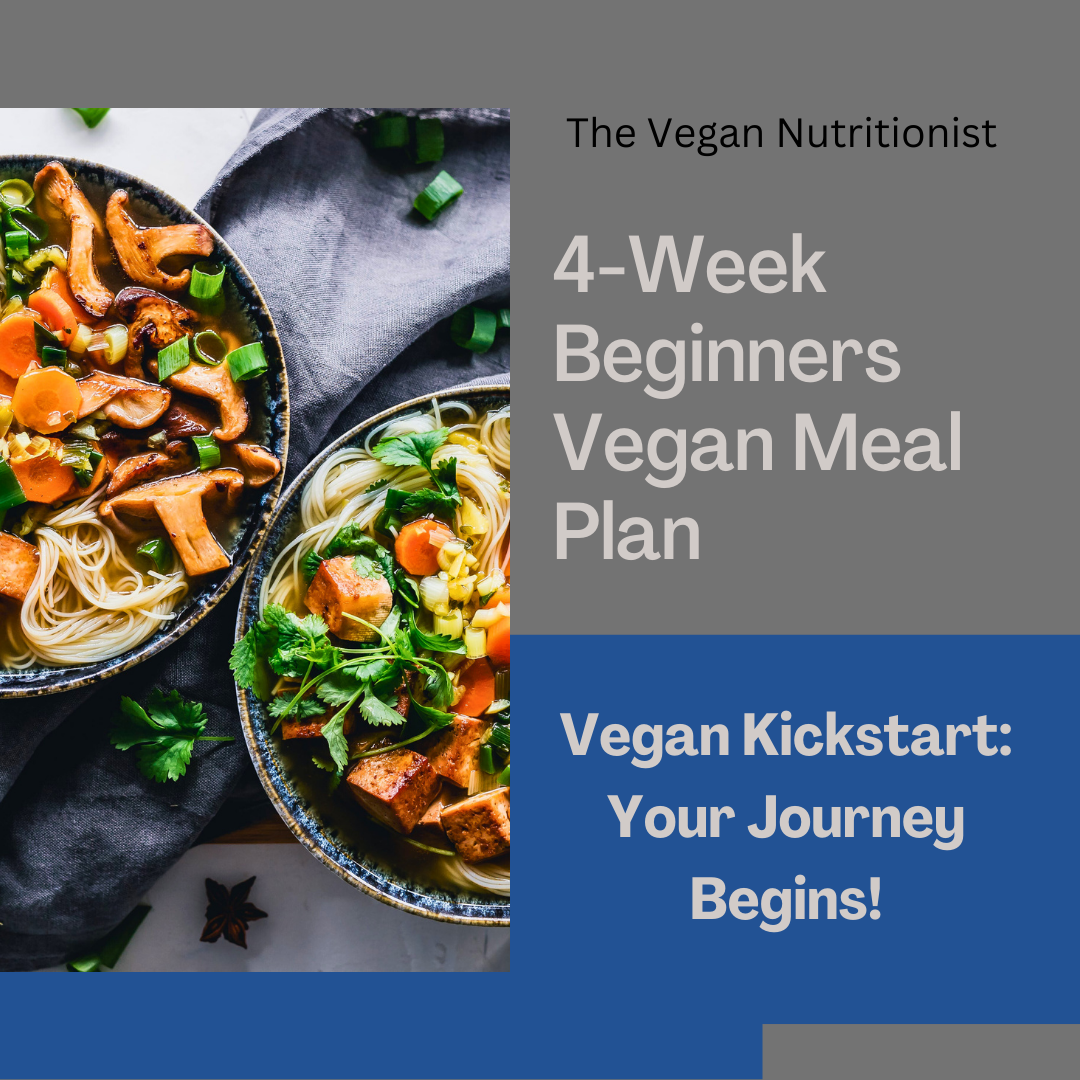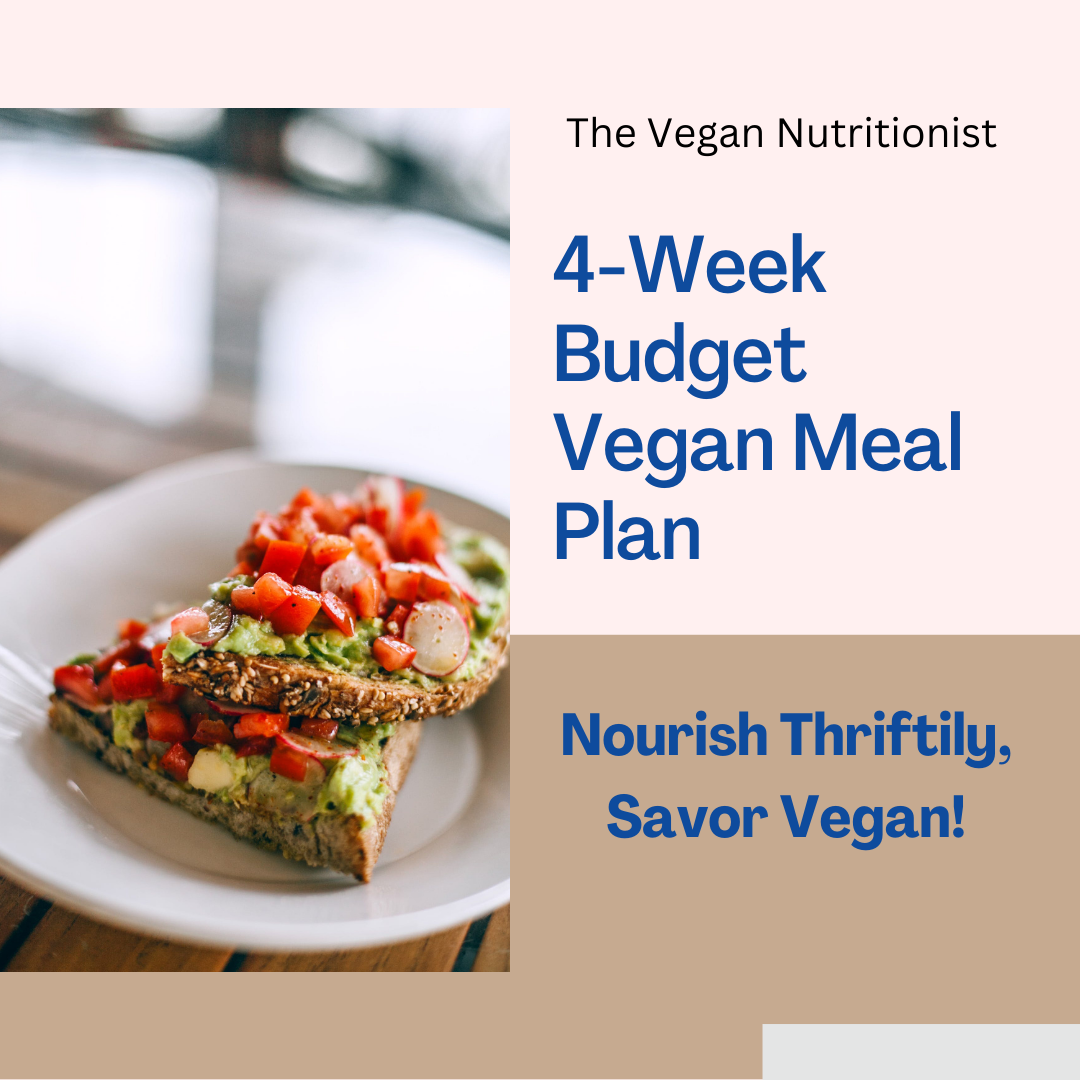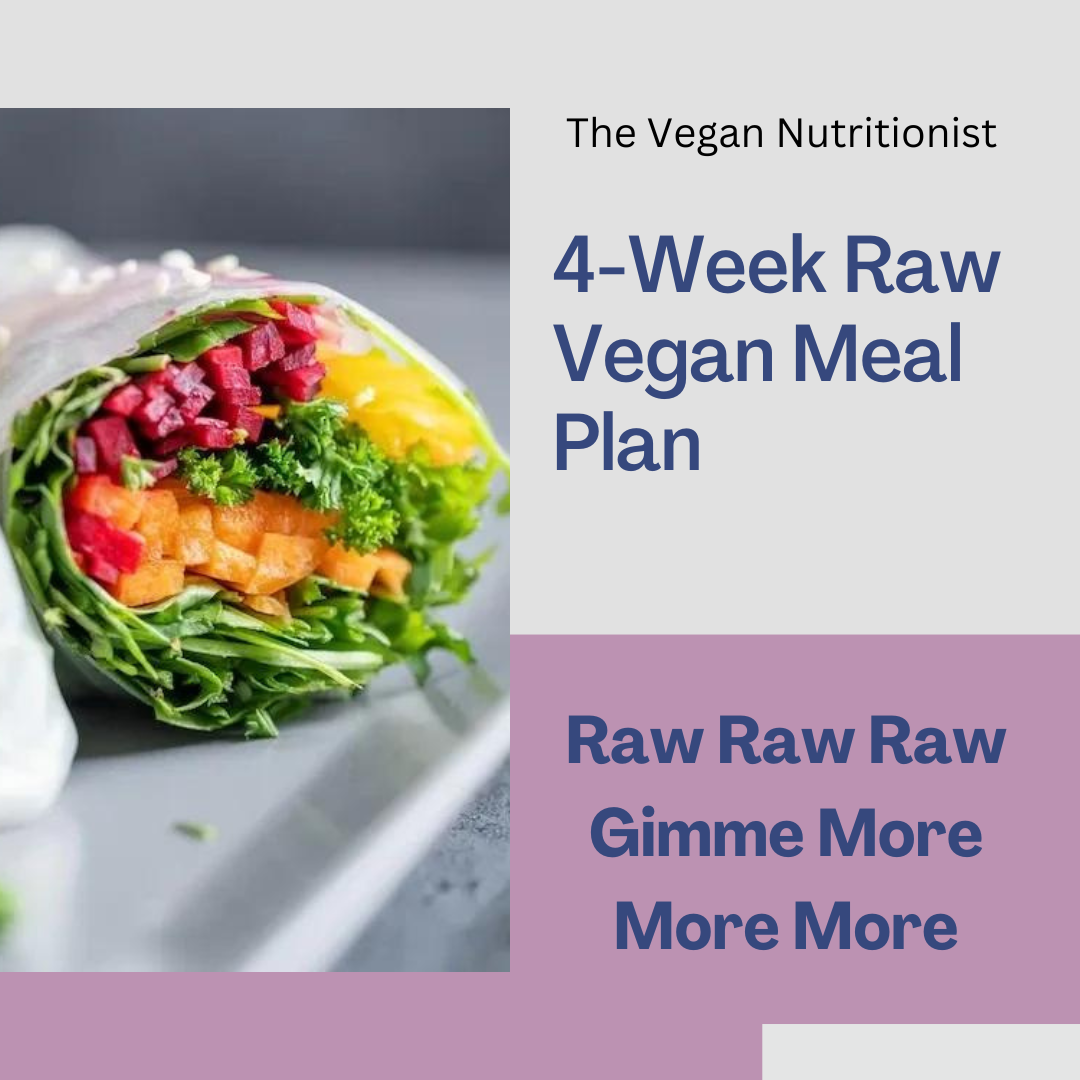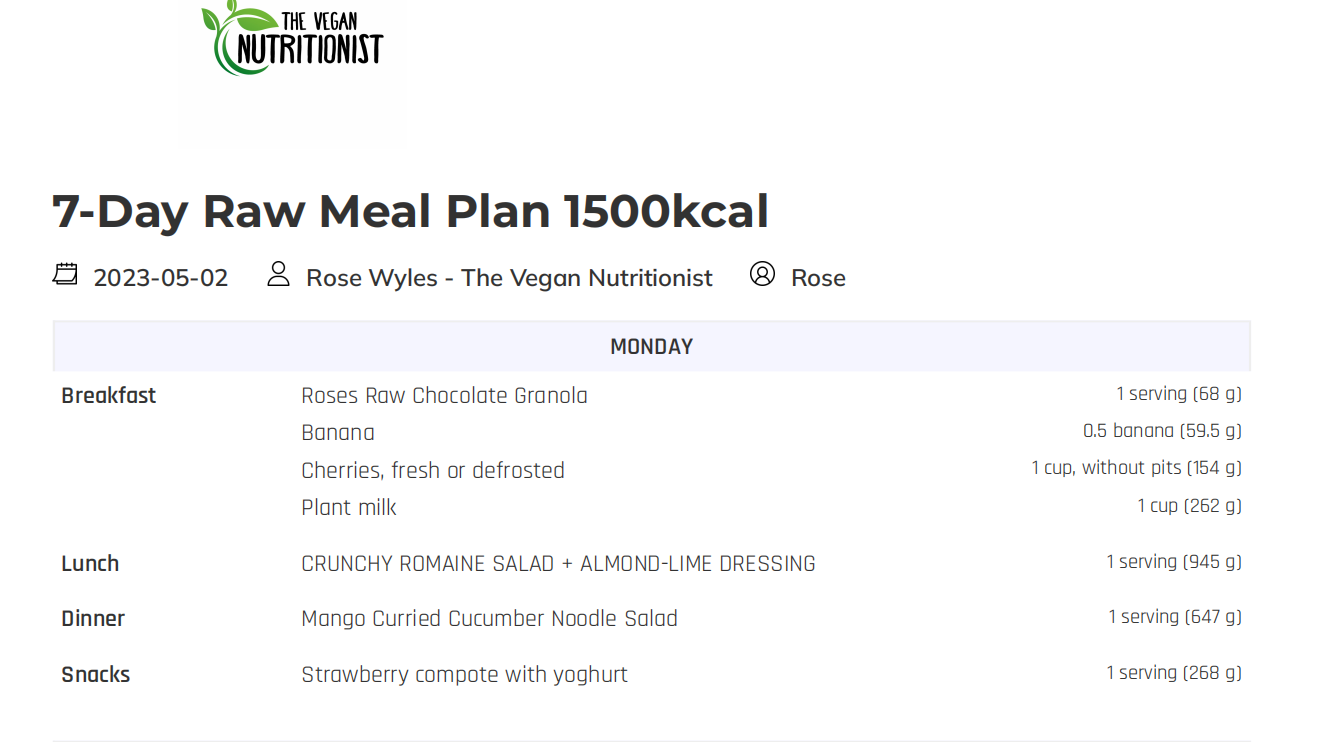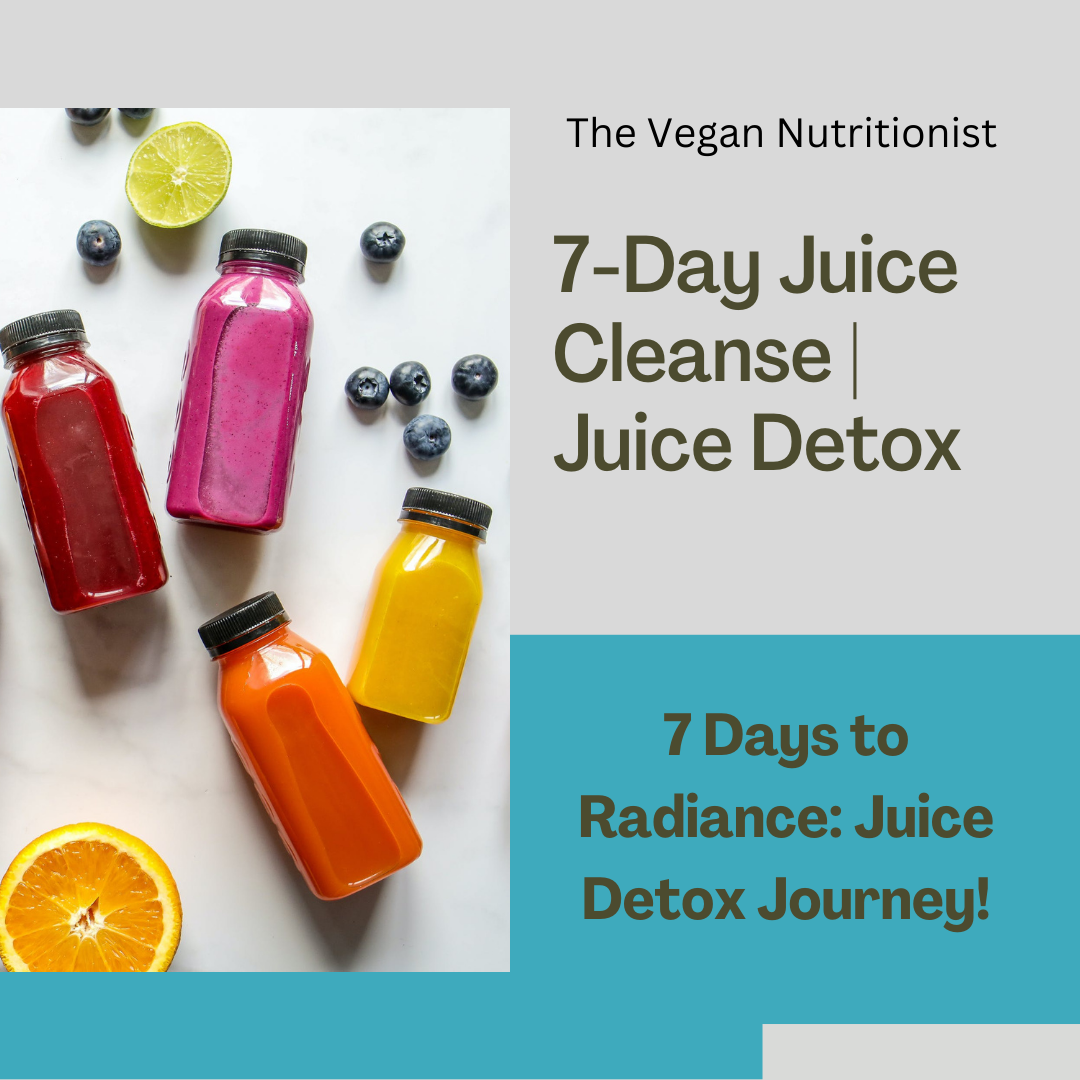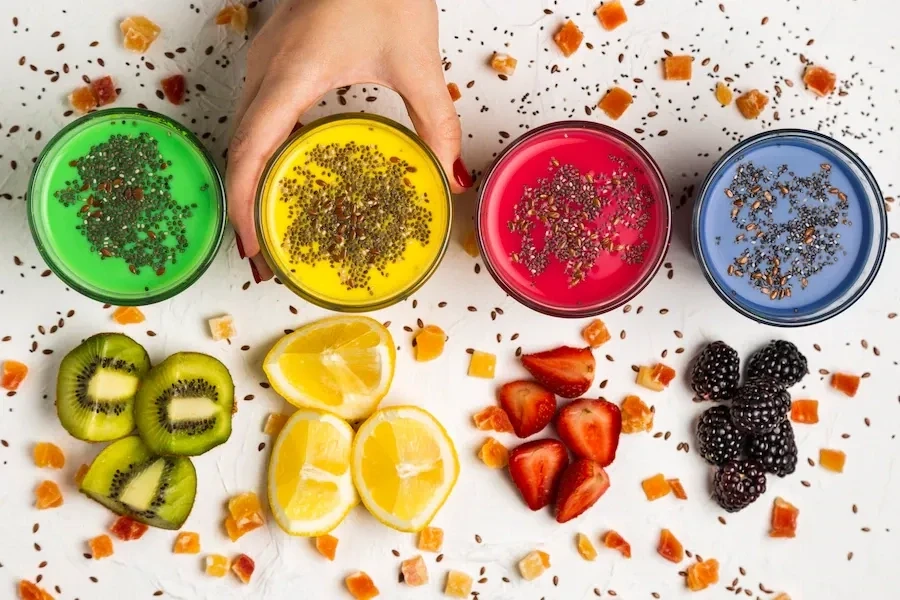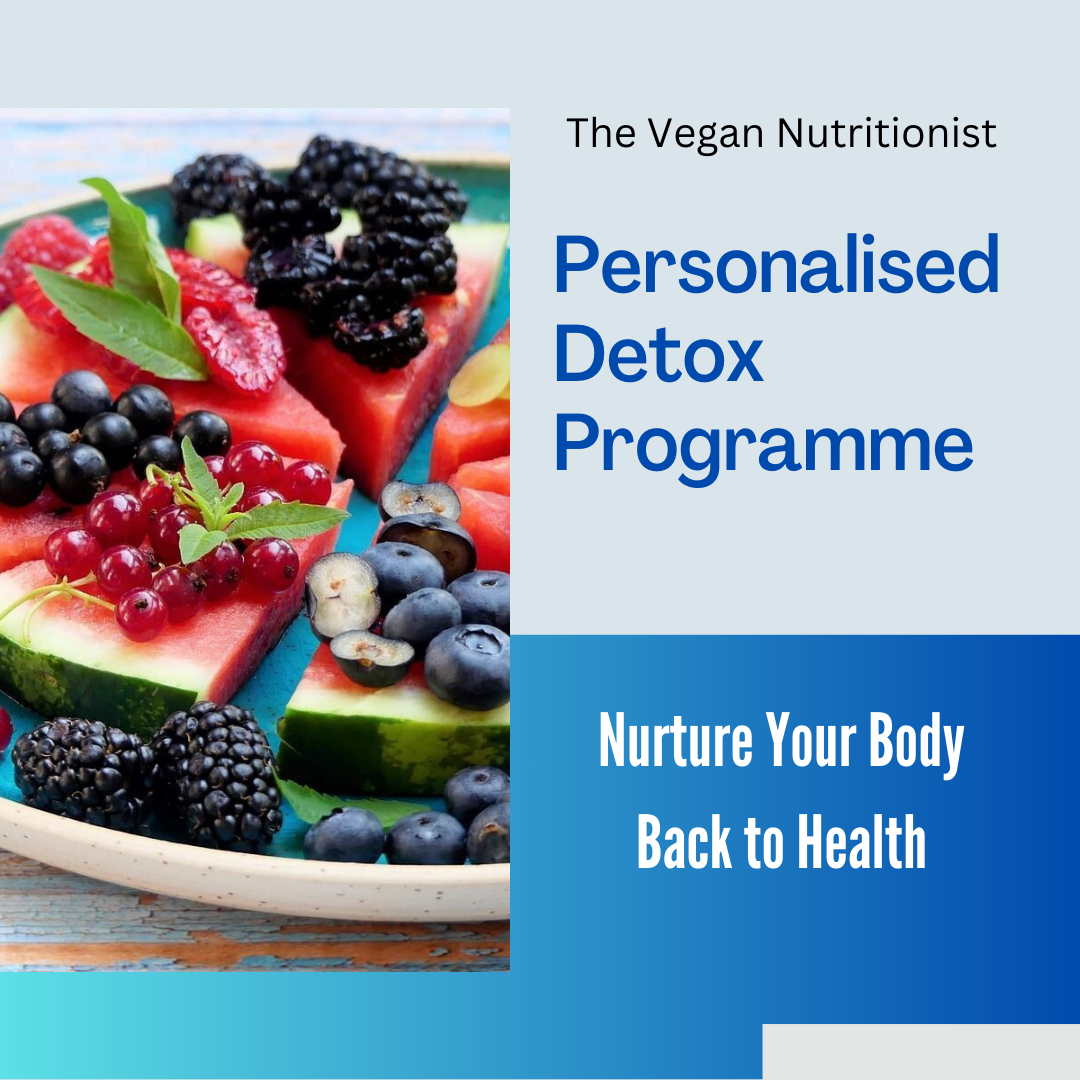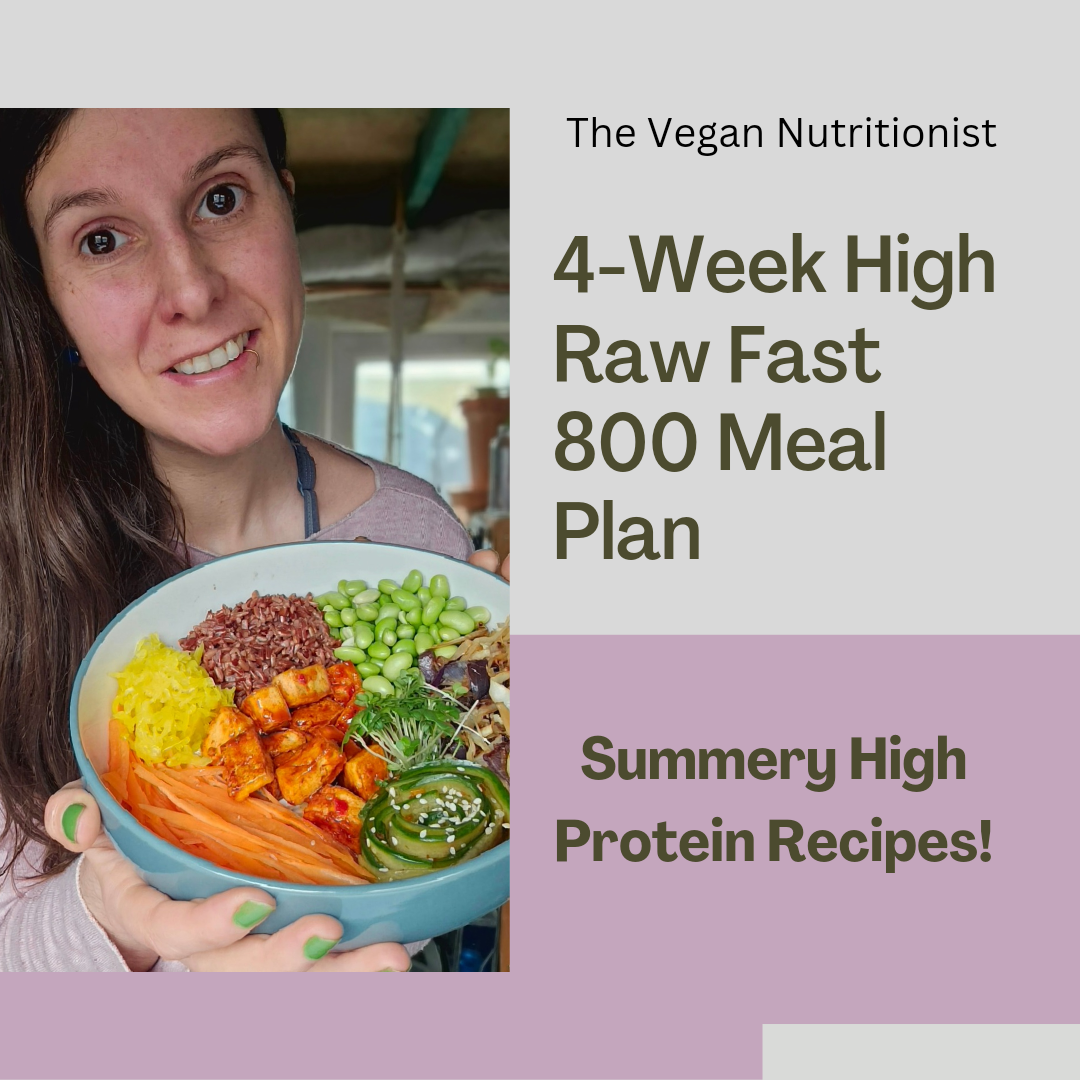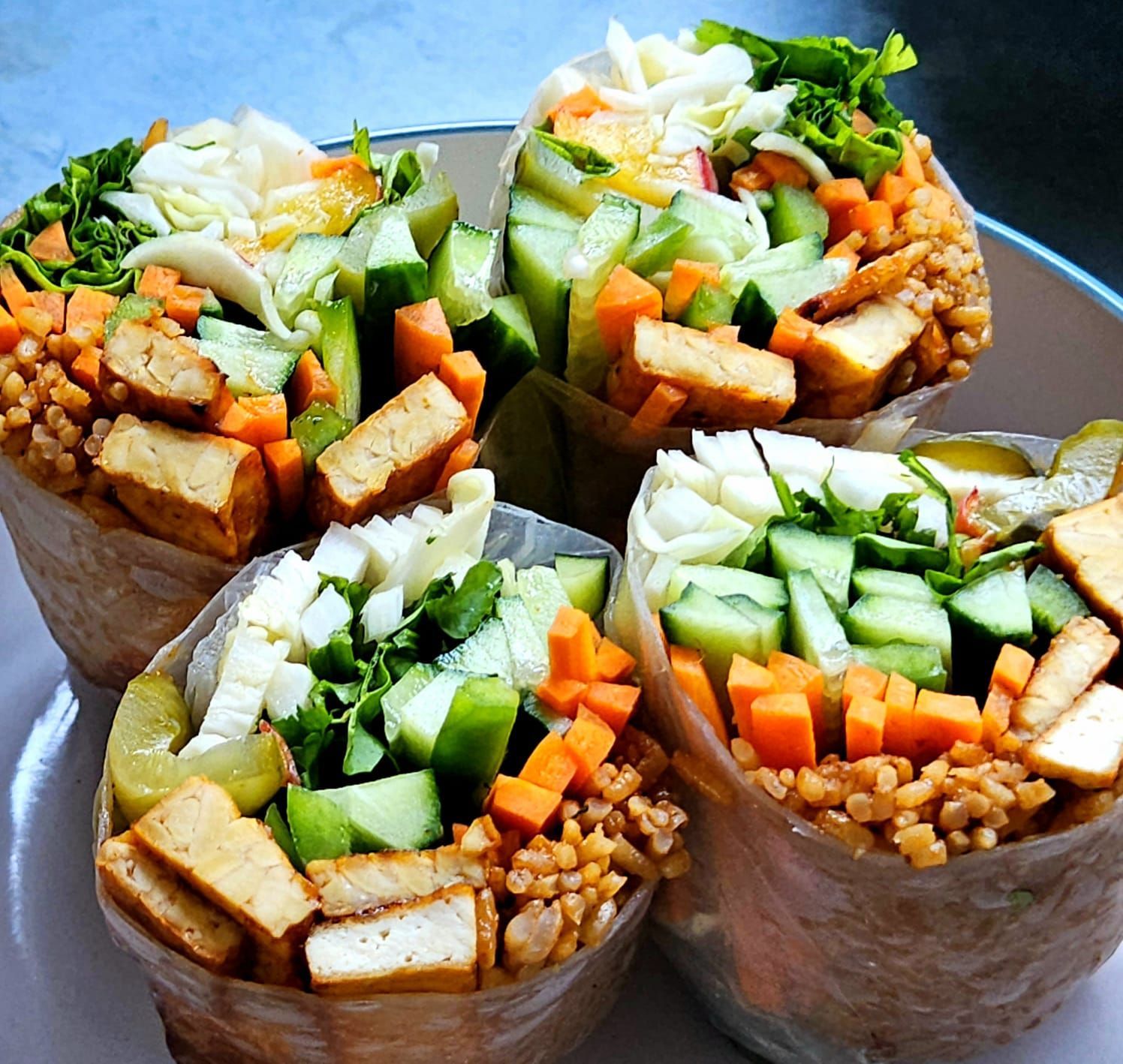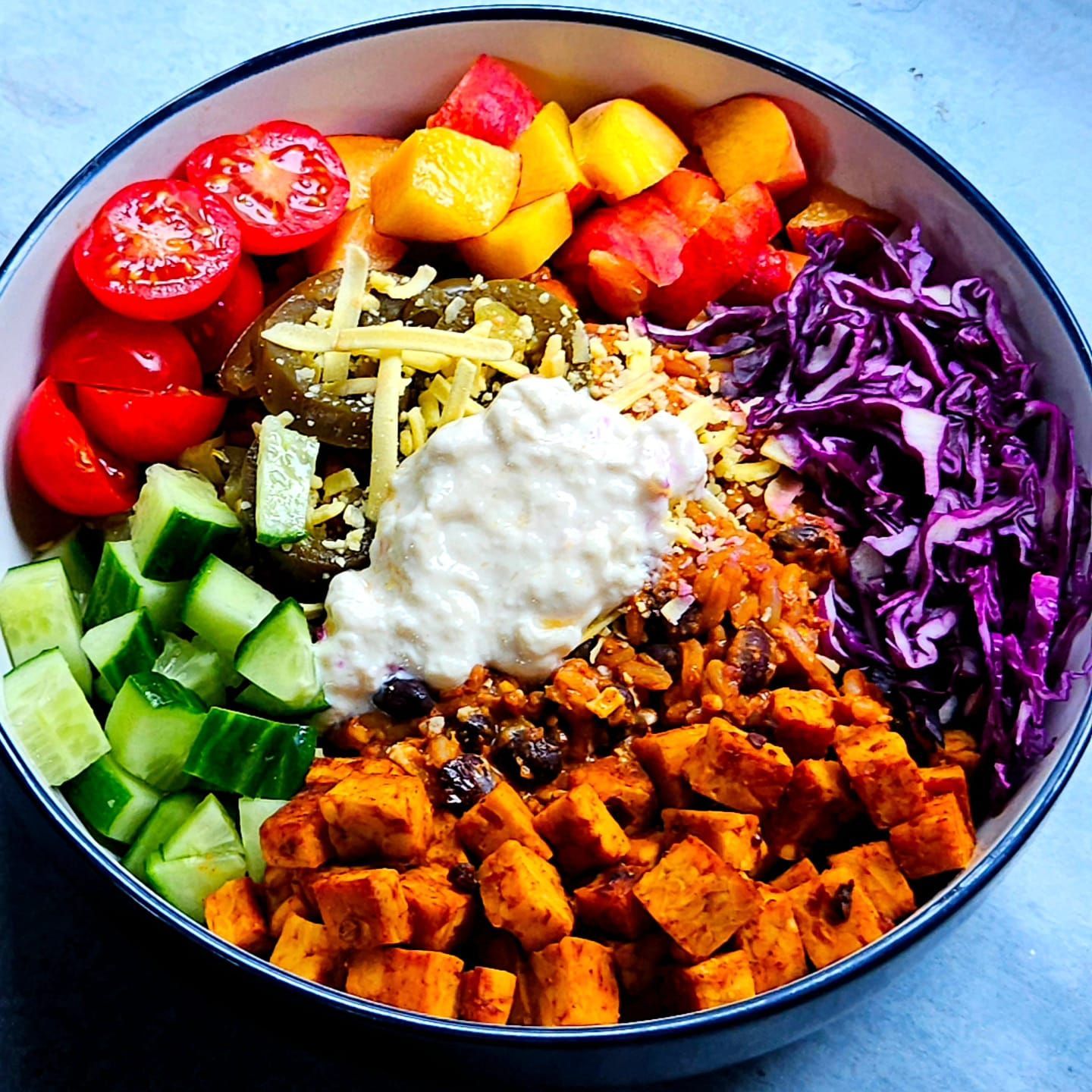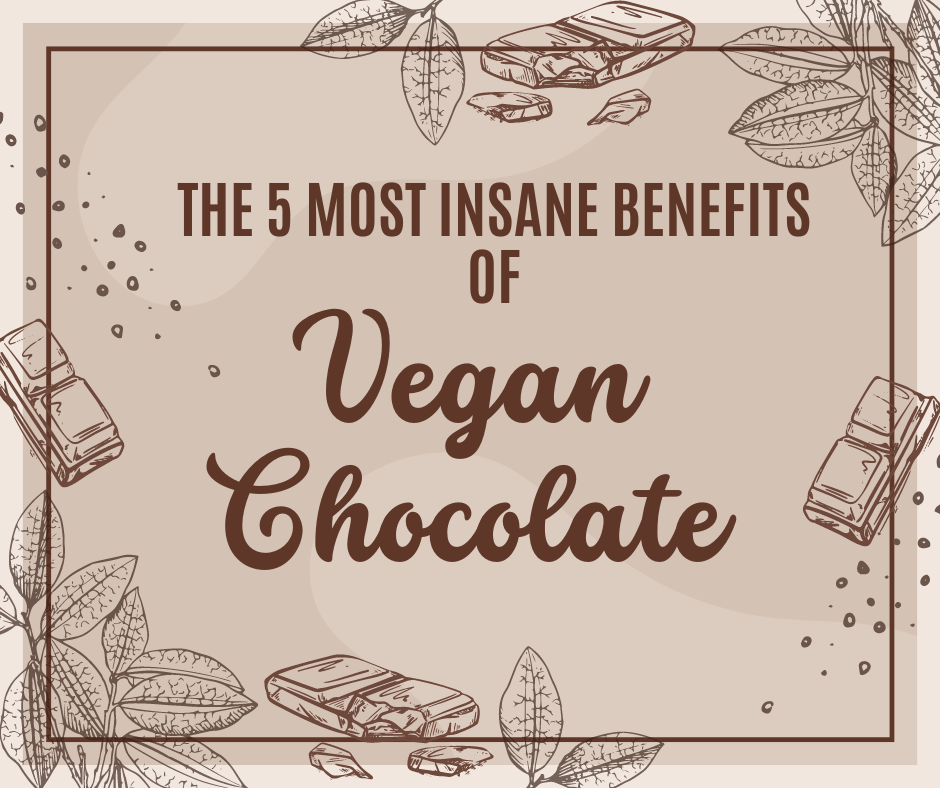How to Do the Vegan Fast 800:
A Plant-Based Approach to Weight Loss and Diabetes Management
In today's fast-paced world, the struggle to maintain a healthy weight and manage conditions like obesity and diabetes is more prevalent than ever. Dr. Michael Mosley, a renowned expert from the UK, has introduced a groundbreaking dietary concept known as the "Fast 800."
This diet involves intermittent fasting and restricting daily calorie intake to between 800-1000 kcal, and it has gained significant attention for its effectiveness in weight loss and diabetes management.
In this article, we'll explore how to adapt the Fast 800 diet to a vegan lifestyle, emphasising the importance of plant-based nutrition and the science behind this transformative approach.
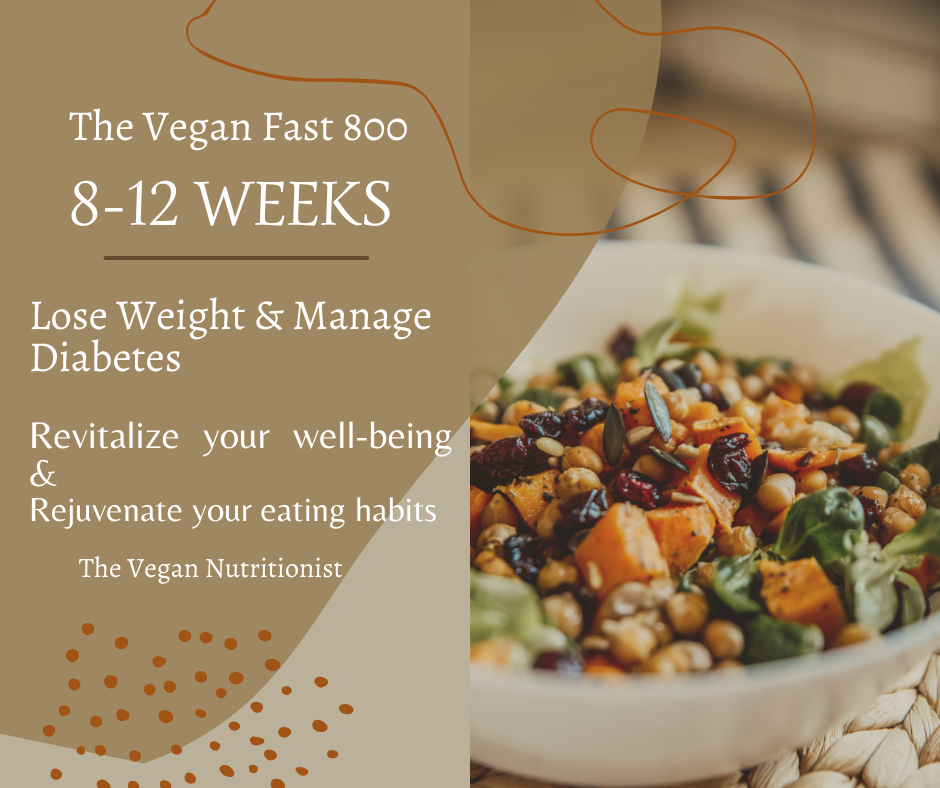
Understanding the Fast 800 Diet
What is the Fast 800 Diet?
The Fast 800 diet, developed by Dr. Michael Mosley, is based on the principles of intermittent fasting and calorie restriction.
It encourages individuals to consume between 800-1000 calories per day for a specific period, usually 8-12 weeks, whilst eating only within a set time window.
This strategic calorie restriction combined with intermittent fasting triggers weight loss and promotes various health benefits, including improved insulin sensitivity.
The Science Behind Intermittent Fasting
Intermittent fasting, a key component of the Fast 800 diet, involves cycling between periods of eating and fasting.
This approach not only aids in weight loss but also has a positive impact on blood sugar levels, making it a promising strategy for individuals with diabetes.
There are multiple time frames that can be paired with this dietary plan, including OMAD: one meal a day, 4-hour window, 6-hour window or 8-hour window.
The most suitable choice would vary for each person; however, based on personal experience following this diet myself, I found the OMAD or 4-hour window to be preferable.
Others may find the 6 or 8-hour window more manageable and still reap the benefits of the Fast 800 diet. It is essential to note that the Fast 800 diet was initially designed with a focus on animal-based products.
However, I have found it entirely possible to modify the Fast 800 diet to a vegan approach for myself and my clients who have contacted me requesting this diet specifically, as plant-based foods are rich in nutrients, they can provide the necessary calories, protein, and variety for this dietary plan.
Also, several studies have shown the effectiveness of plant-based diets in weight loss and diabetes management.
A plant-based approach would focus on consuming 800-1000 calories per day from plant-based sources, such as fruits, vegetables, legumes, whole grains, nuts, and seeds.
These plant-based ingredients can be combined in numerous ways to create meals that are both nutrient-rich and satisfying, while also being low in calories.

Basic principles of the Fast 800
To follow a vegan approach on the Fast 800 diet, it is important to emphasise nutrient-rich plant-based foods that provide sufficient calories for this specified period. The Fast 800 aims to support weight loss and enhance metabolic health.
Here are the basic principles of the Fast 800:
· Time-Restricted Eating:
The Fast 800 plan typically involves a form of time-restricted eating, where you limit your daily eating window to a specific number of hours. Common options are the 16/8 method (fast for 16 hours and eat within an 8-hour window) or you can adopt a smaller eating window such as the OMAD: one meal a day, or a flexible window (such as fasting for 18-20 hours then eating within a 4-6 hour window).
· Calorie Restriction:
During your eating window, you consume a reduced number of calories, usually around 800 to 1,000 calories per day. These calories should come from nutrient-dense foods to ensure you get essential nutrients despite the calorie restriction.
· Balanced Nutrition:
While the calorie intake is low, it's essential to focus on nutrient-dense foods. Incorporate plenty of vegetables, plant-based proteins, healthy fats, and whole grains into your meals to ensure you're getting essential vitamins and minerals.
· Avoid Processed Foods:
Eliminate or minimise processed and high-sugar foods from your diet. These foods can lead to rapid spikes in blood sugar and may hinder your weight loss efforts.
· Hydration:
Stay well-hydrated by drinking plenty of water throughout the day. Herbal teas and black coffee are often allowed during fasting hours as long as they are consumed without sugar or milk.
· Exercise:
Incorporate regular physical activity into your routine. Light exercise is recommended such as walking, body weight exercise, yoga, and swimming.
· Supplements:
Depending on your specific dietary needs, you may consider taking supplements, such as multivitamins or minerals, to ensure you're meeting your nutritional requirements.
· Consult a Healthcare Professional:
Before starting any new diet plan, especially one as restrictive as the Fast 800, it's essential to consult with your healthcare provider and a qualified nutritionist. They can provide personalised guidance and ensure it's safe and appropriate for your individual health needs.
Remember that the Fast 800 is not suitable for everyone, and individual results may vary. It's crucial to approach any dietary changes with caution and under the guidance of a healthcare professional to ensure it aligns with your specific health goals and needs.
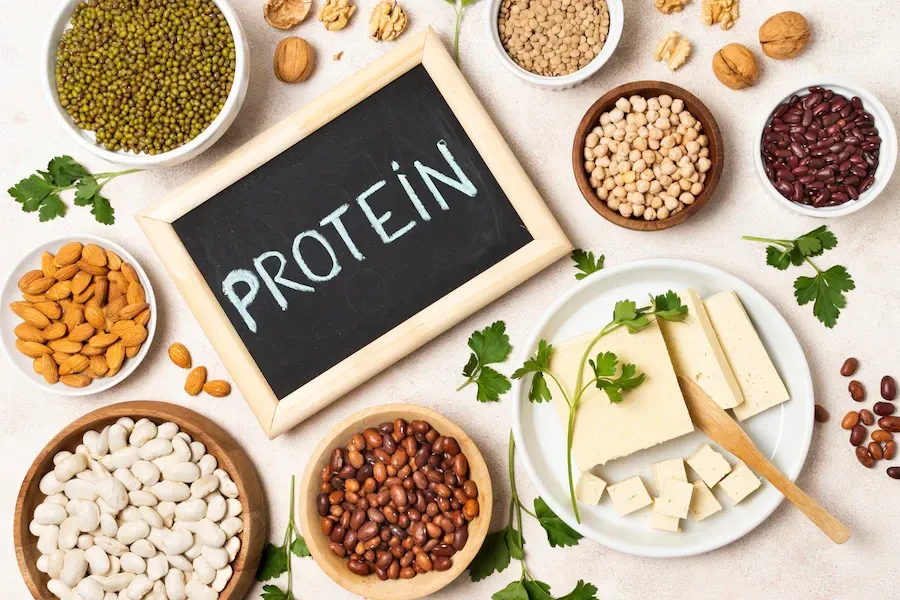
Adapting the Fast 800 Diet to a Vegan Lifestyle
· High-Protein, Low-Calorie Vegan Foods
To successfully follow the Fast 800 diet as a vegan, it's essential to prioritise high-protein, low-calorie foods. Incorporate plant-based protein sources such as beans, tofu, tempeh, and seitan into your meals. These protein-rich foods will help you stay full and satisfied while adhering to the calorie restrictions.
· Emphasizing Vegetables, Grains, and Legumes
Your vegan Fast 800 diets should predominantly consist of vegetables, whole grains, and legumes. These nutrient-dense foods provide essential vitamins, minerals, and fiber while keeping calorie intake in check. Opt for a colourful array of vegetables and whole grains like quinoa and brown rice to create satisfying and nutritious meals. You can also utilise high-protein pastas and noodles to further boost your protein intake without excess calories.
· Plant-Based Protein Alternatives
Explore plant-based protein alternatives like chickpea pasta, black bean/edamame noodles, high-protein bread, textured vegetable protein (TVP), seitan, and whole soy products. These options offer protein richness without the excess calories, making them perfect for the Fast 800 diet.

The Benefits of a Plant-Based Approach
Why Choose a Vegan Fast 800 Diet?
Opting for a vegan Fast 800 diet aligns with the principles of ethical and sustainable eating. Additionally, plant-based diets have been linked to improved heart health, reduced inflammation, and better weight management. Choosing plant-based options also reduces the intake of saturated fats commonly found in animal products.
The Synergy of Intermittent Fasting and Veganism
Combining intermittent fasting with a vegan lifestyle can lead to remarkable results. Fasting periods help your body enter a state of ketosis, where it burns stored fat for energy. This synergises perfectly with a vegan diet, which is naturally lower in calories and fat.
Research Supporting the Fast 800 Diet for Diabetes and Weight Loss
· Vegan Diabetes Diet For Diabetes Management
Several studies have shown that the vegan Fast 800 diet can significantly improve blood sugar control in individuals with type 2 diabetes. The combination of calorie restriction and intermittent fasting when following a vegan diabetes meal plan helps enhance insulin sensitivity and reduce insulin resistance, contributing to better diabetes management [1-2].
· Weight Loss Success
The Fast 800 diet has gained popularity for its impressive weight loss results. By limiting calorie intake and promoting fat burning during fasting periods, this approach can lead to substantial and sustainable weight loss [3-4].
Conclusion
The Fast 800 diet, as pioneered by Dr. Michael Mosley, offers a compelling approach to weight loss and diabetes management.
When adapted to a vegan lifestyle, it becomes a powerful tool for those seeking a sustainable and ethical path to improved health. By emphasising plant-based nutrition, high-protein vegan foods, and the science of intermittent fasting, individuals can unlock the full potential of the Fast 800 diet while enjoying the benefits of a cruelty-free and eco-friendly diet.
If you are looking for help in incorporating the Fast 800 Diet into a vegan lifestyle, I can provide customised meal plans that cater to your specific needs. Feel free to contact me for assistance with adopting the Fast 800 diet according to your preferences.
Buy a High-Protein Vegan Fast 800 Meal Plan
If you are interested you can purchase the Vegan Fast 800 Meal Plan from my shop. I also have a Fast 1200 available for men who require higher calorie intake.
Buy the Fast 800 Meal Plan, Click Here!
I've recently created a 4-week summer version of the fast 800 to incorporate high raw recipes that are delicious, rich in protein, and perfect for summer time.
Frequently Asked Questions
References
Share this Post!
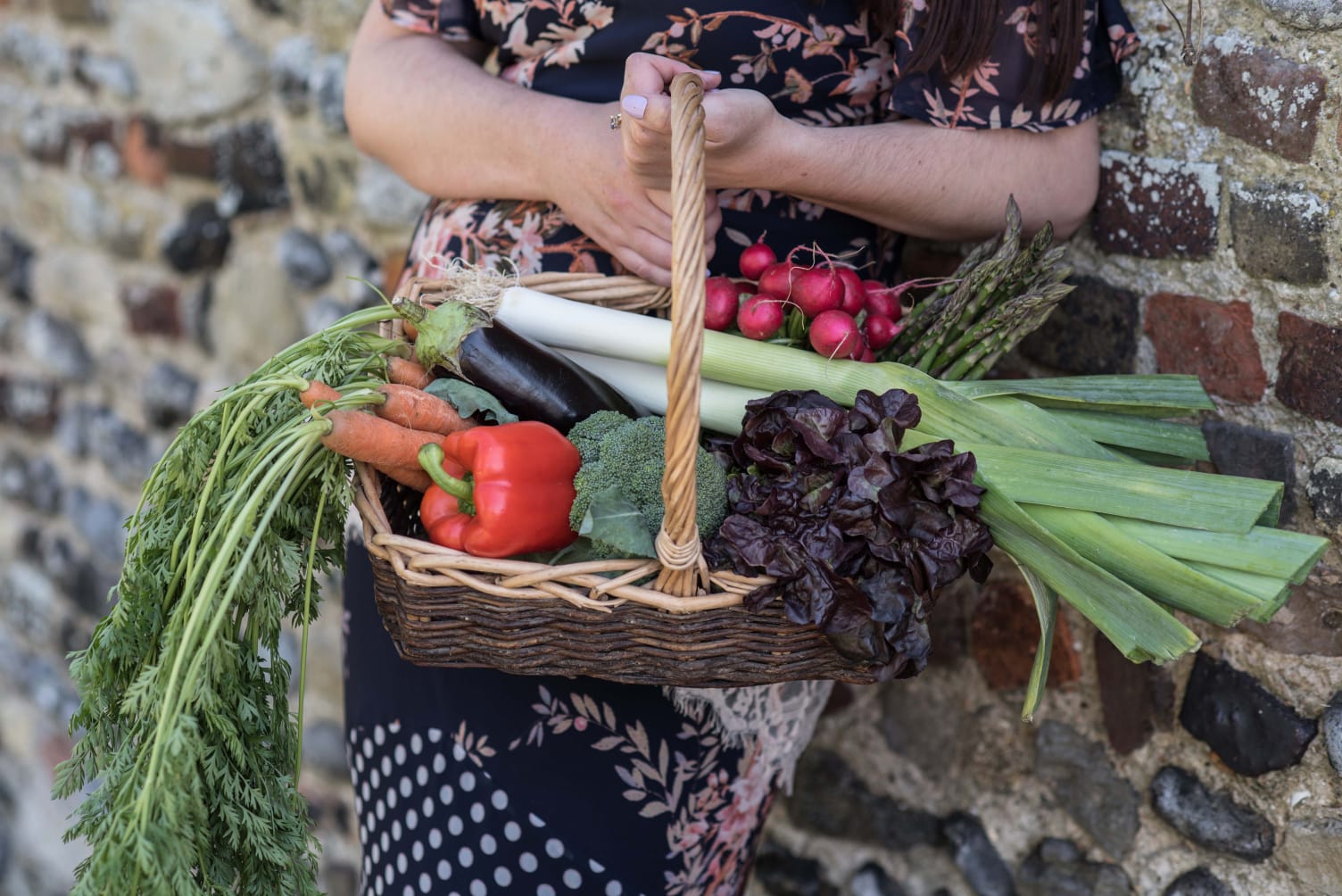
Reach out by sending me an email
Need assistance with your diet or health goals? I'm here to help. Send me a message and I'll be in touch.

